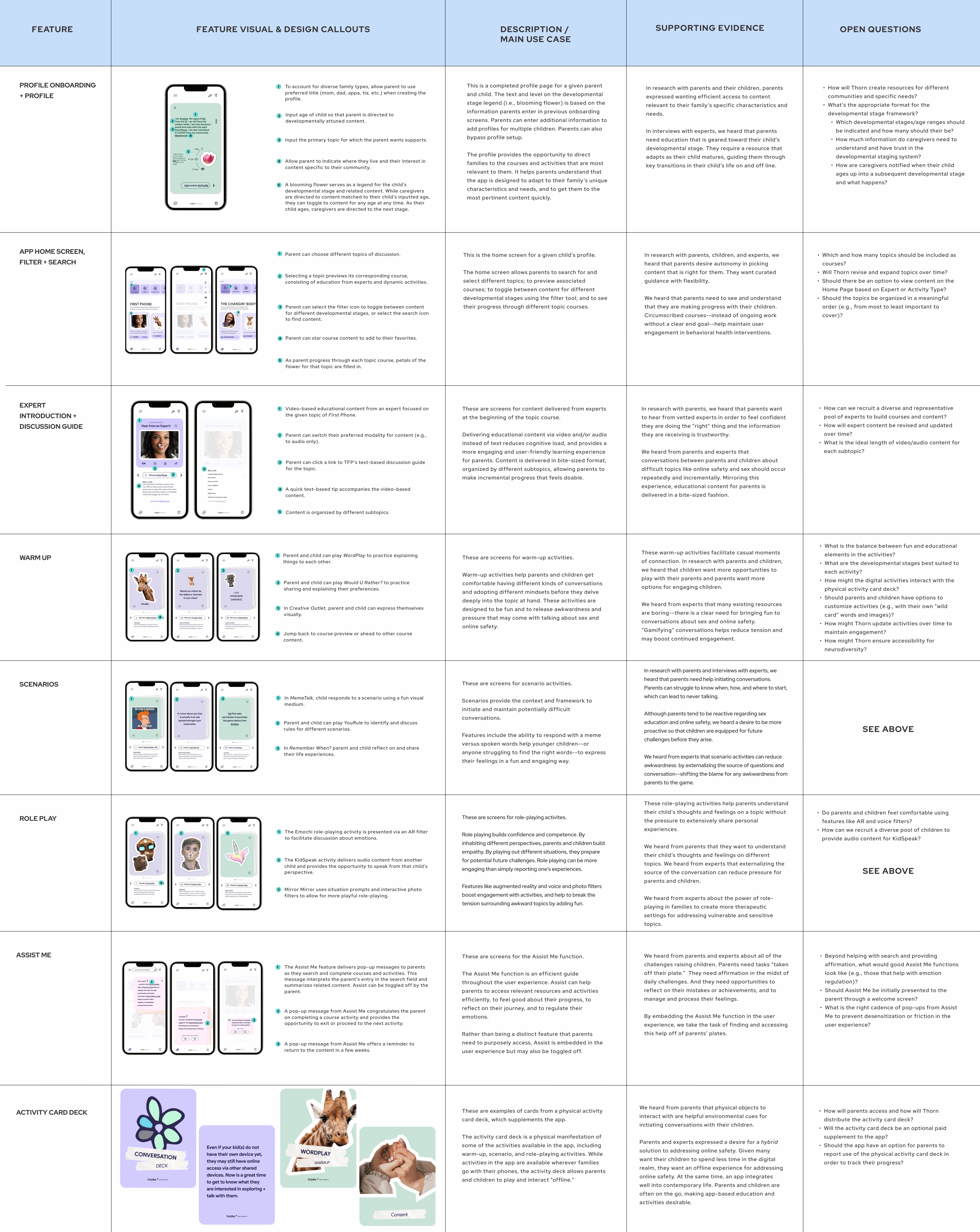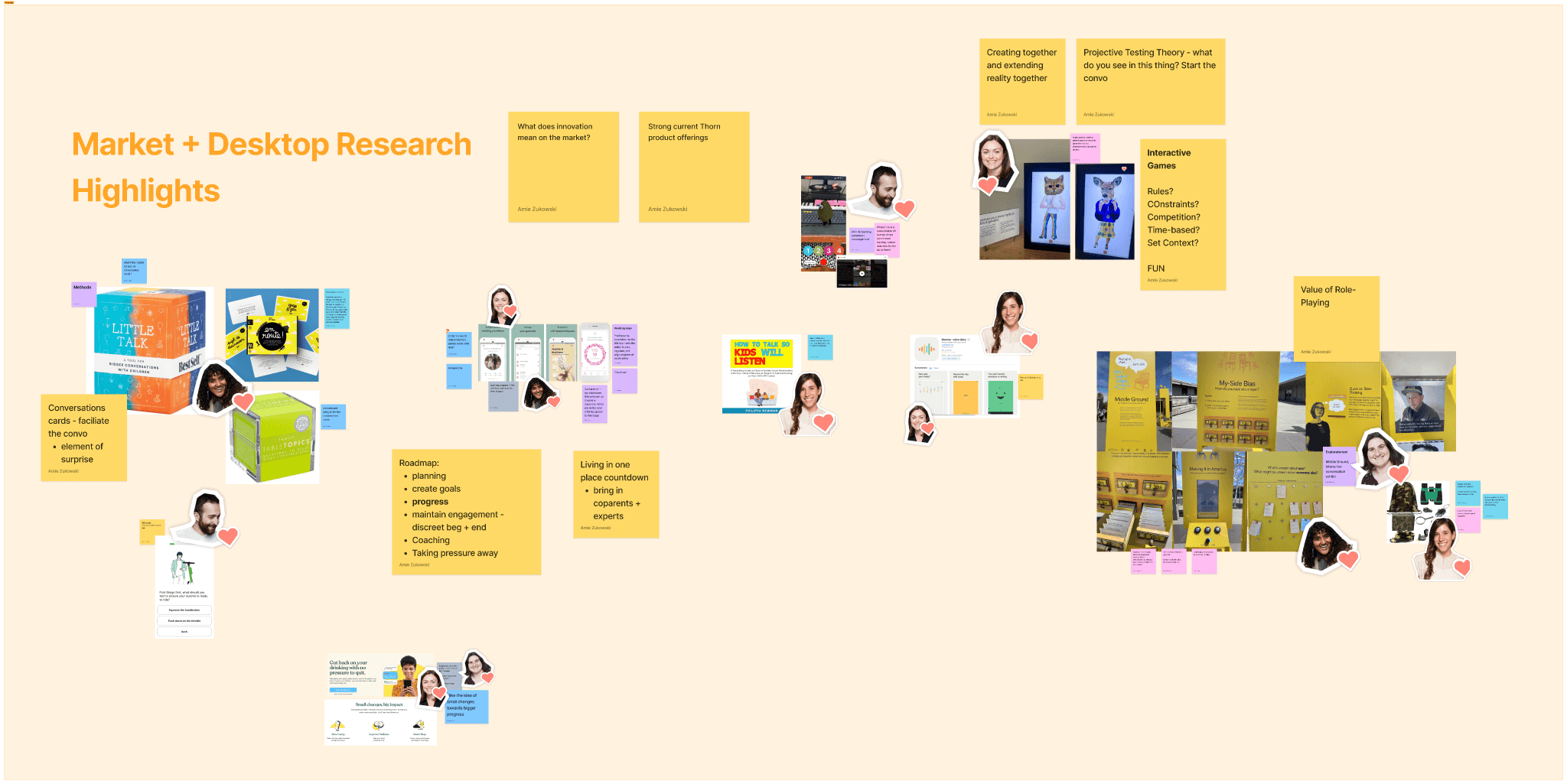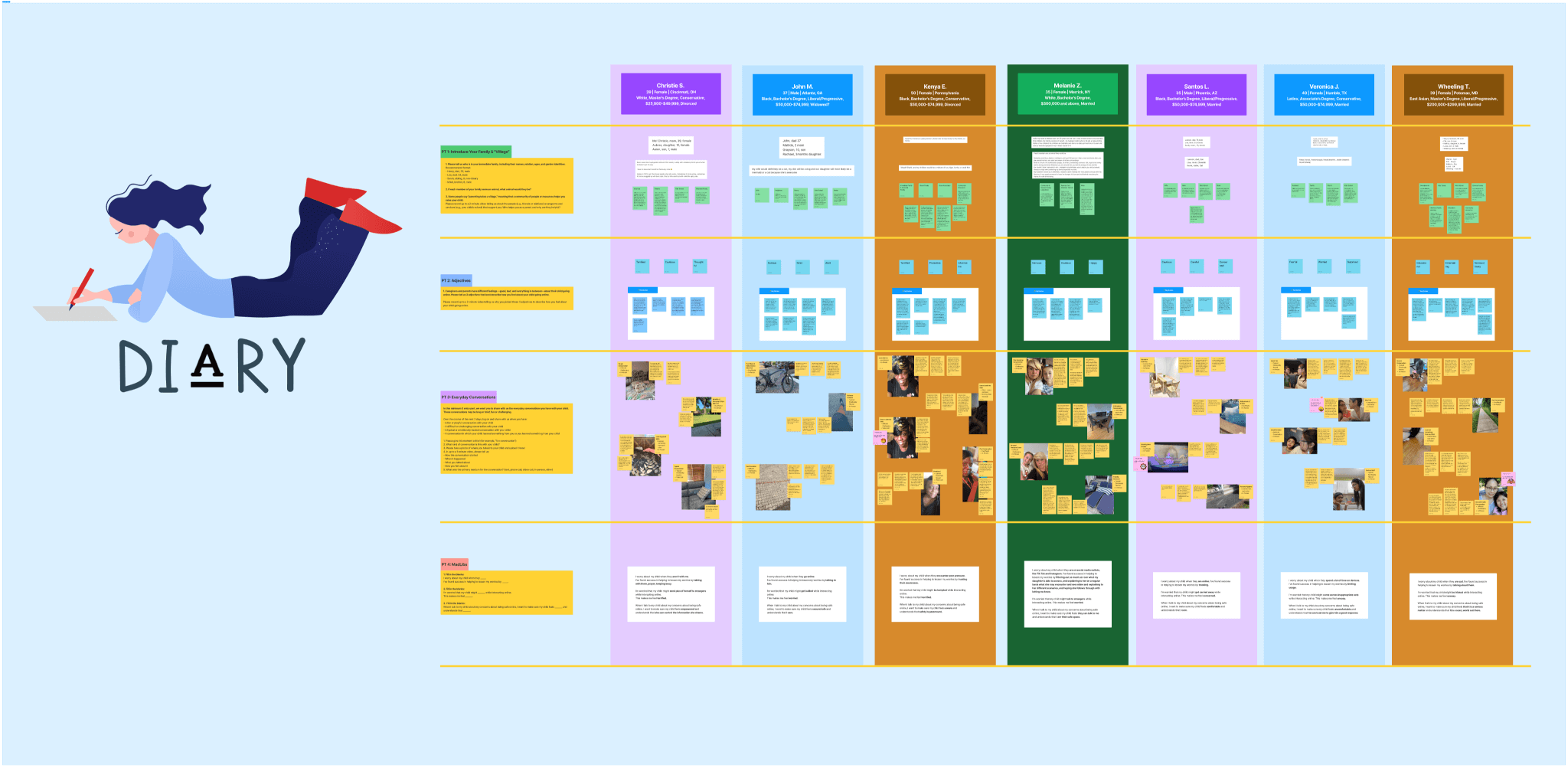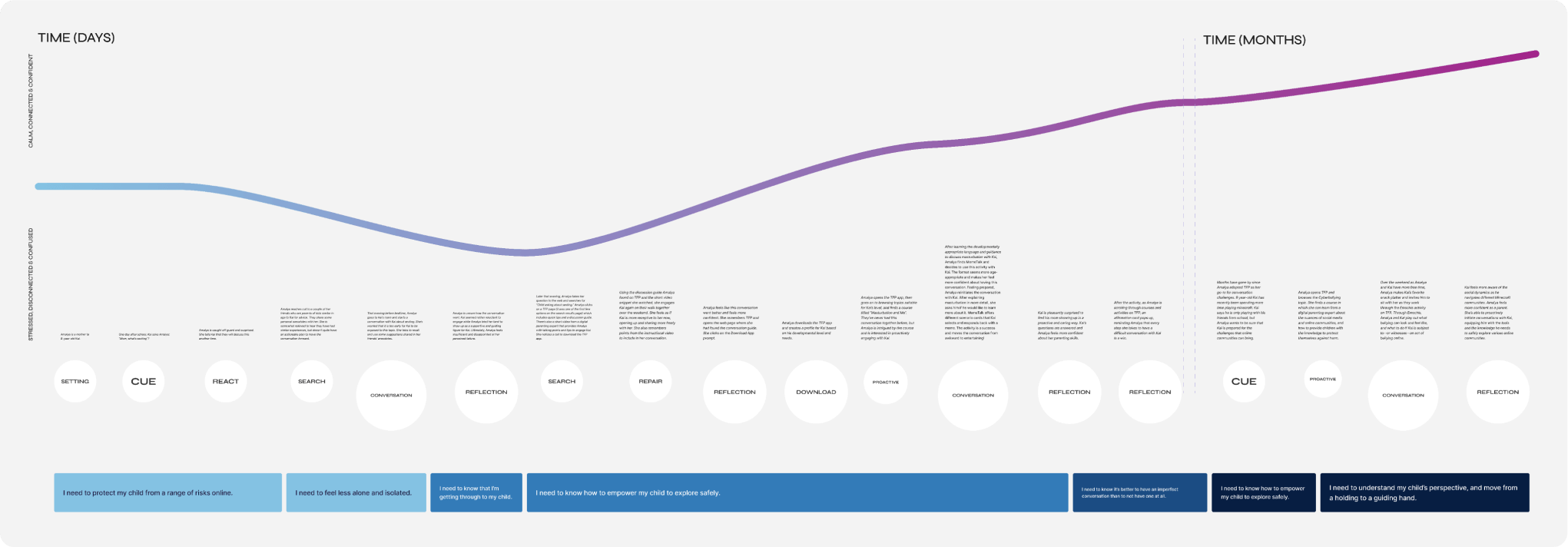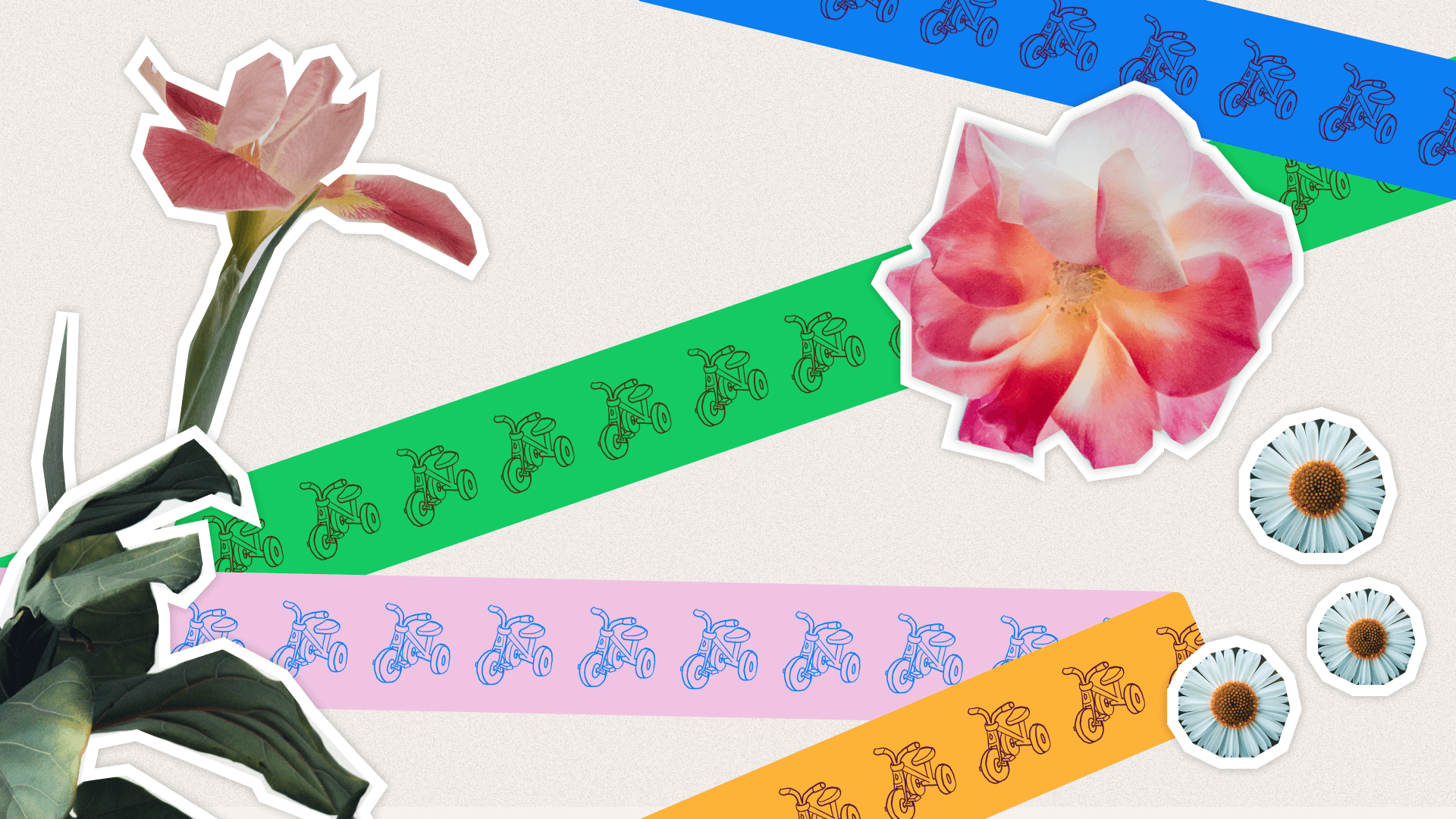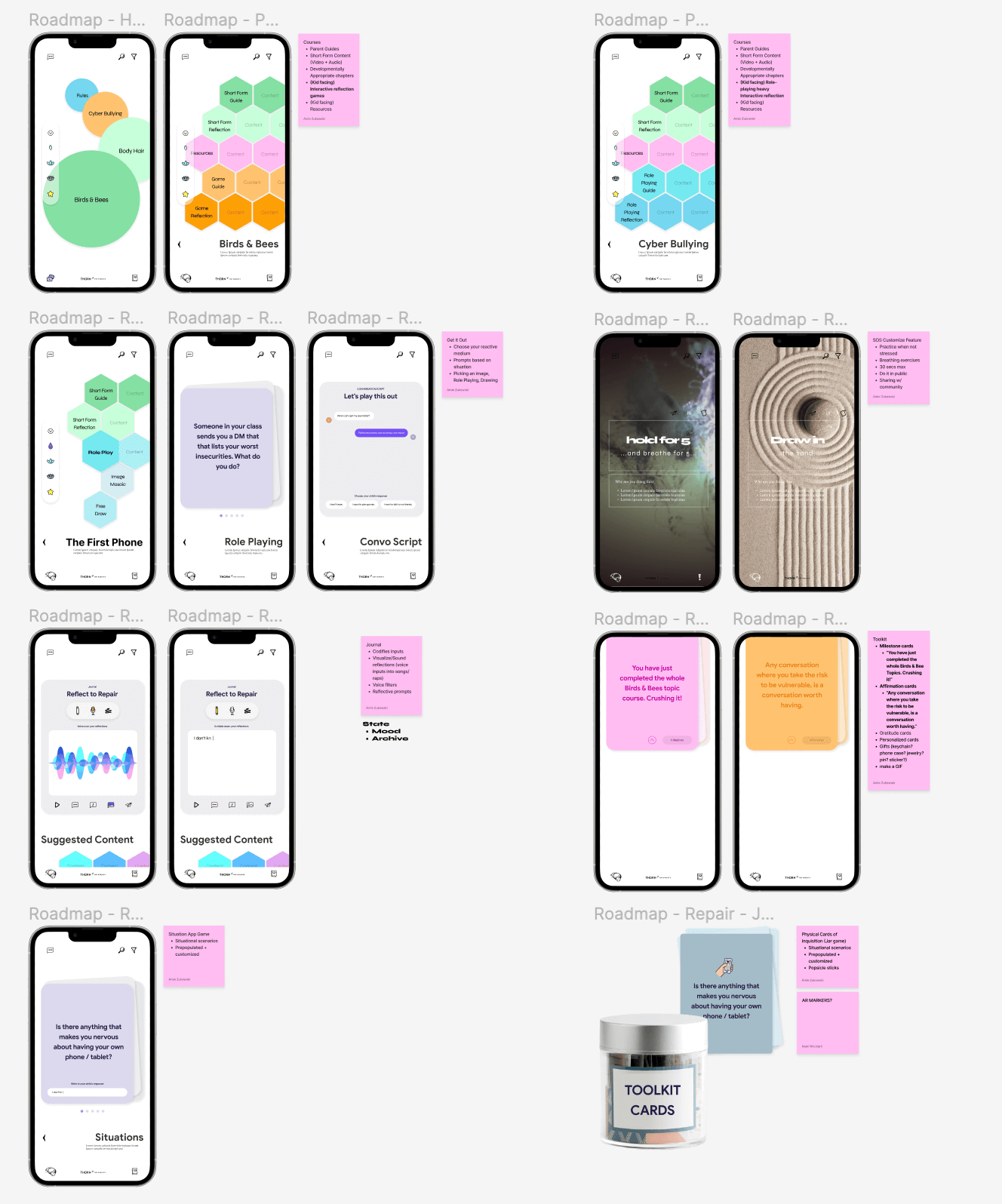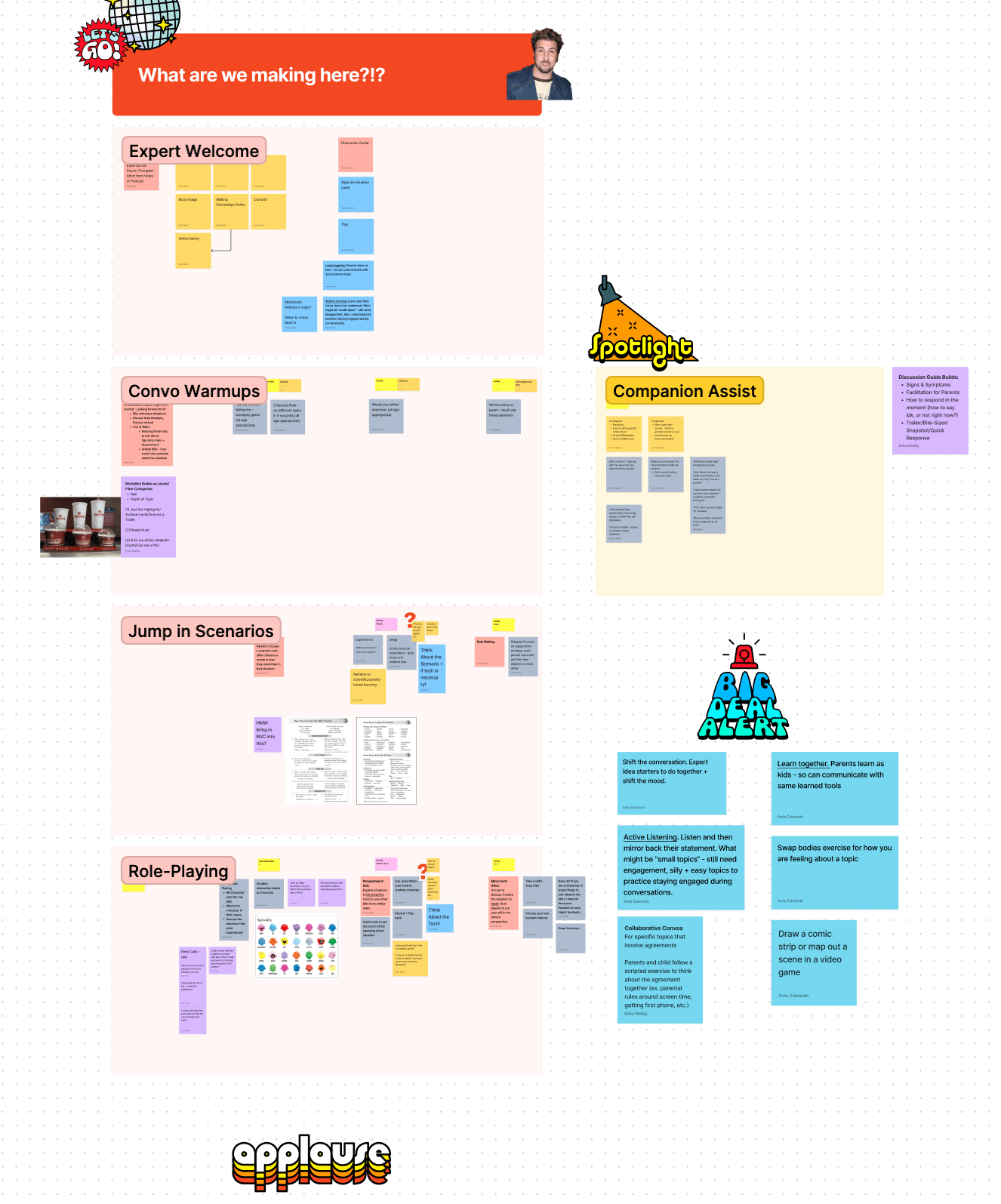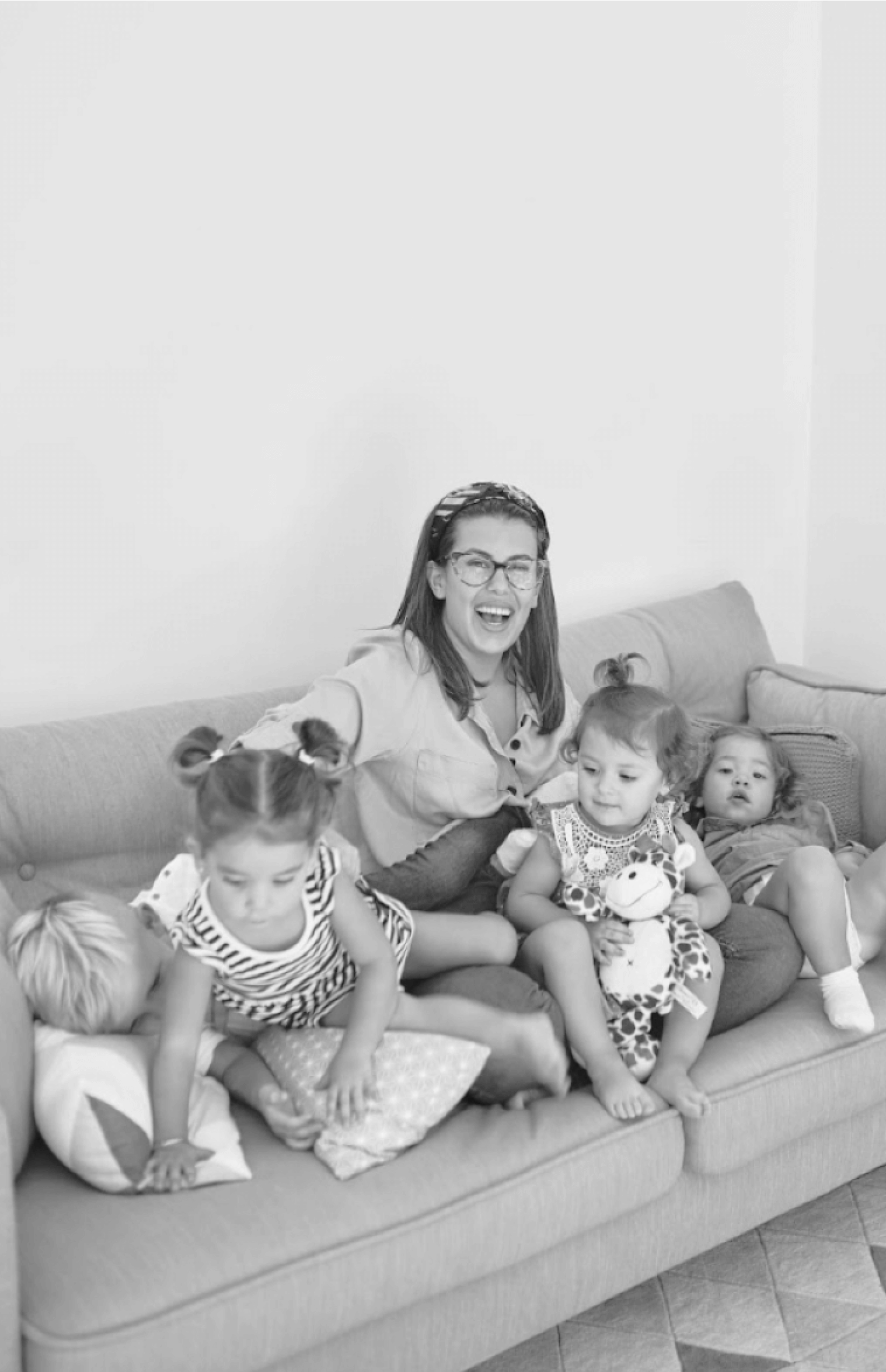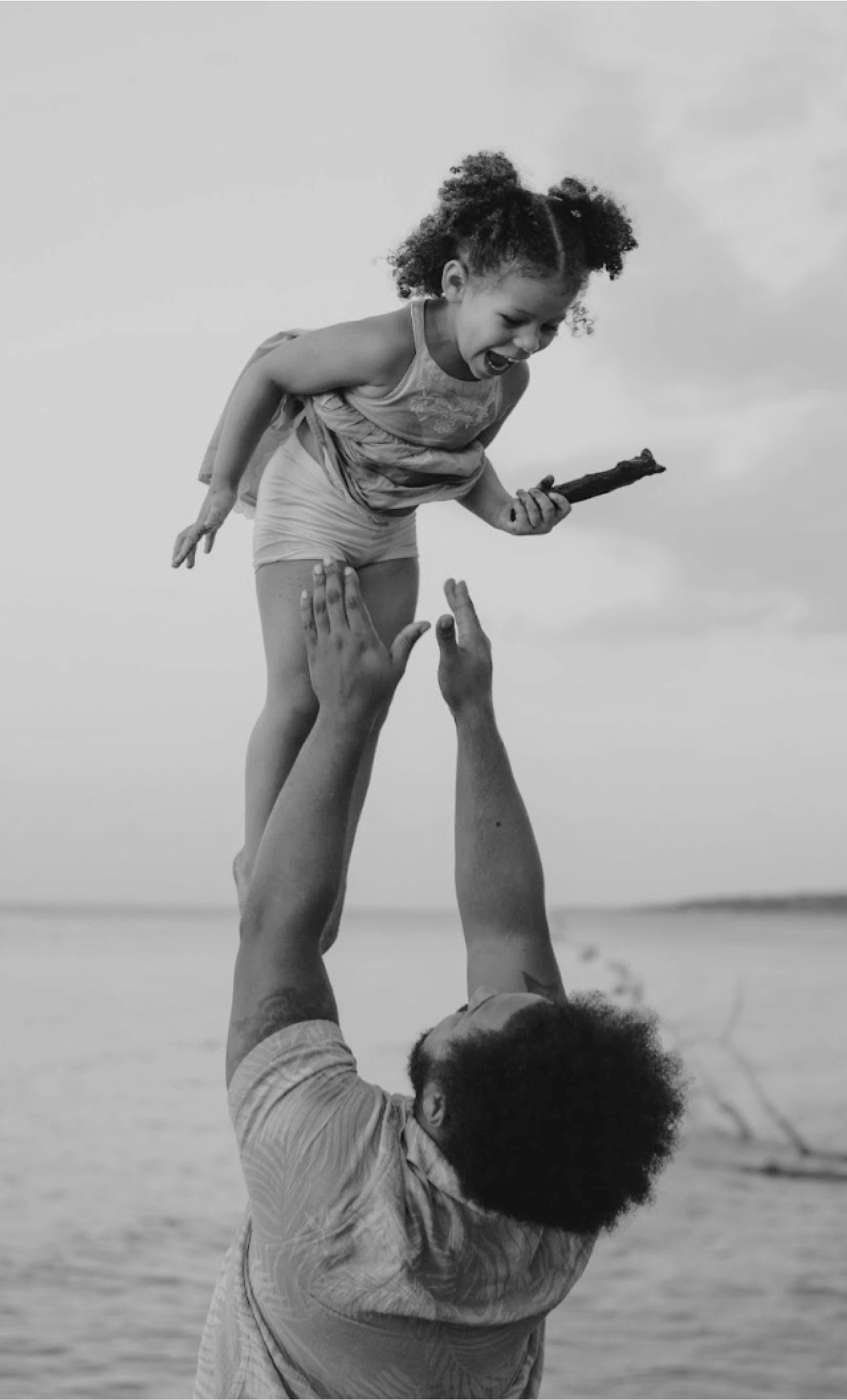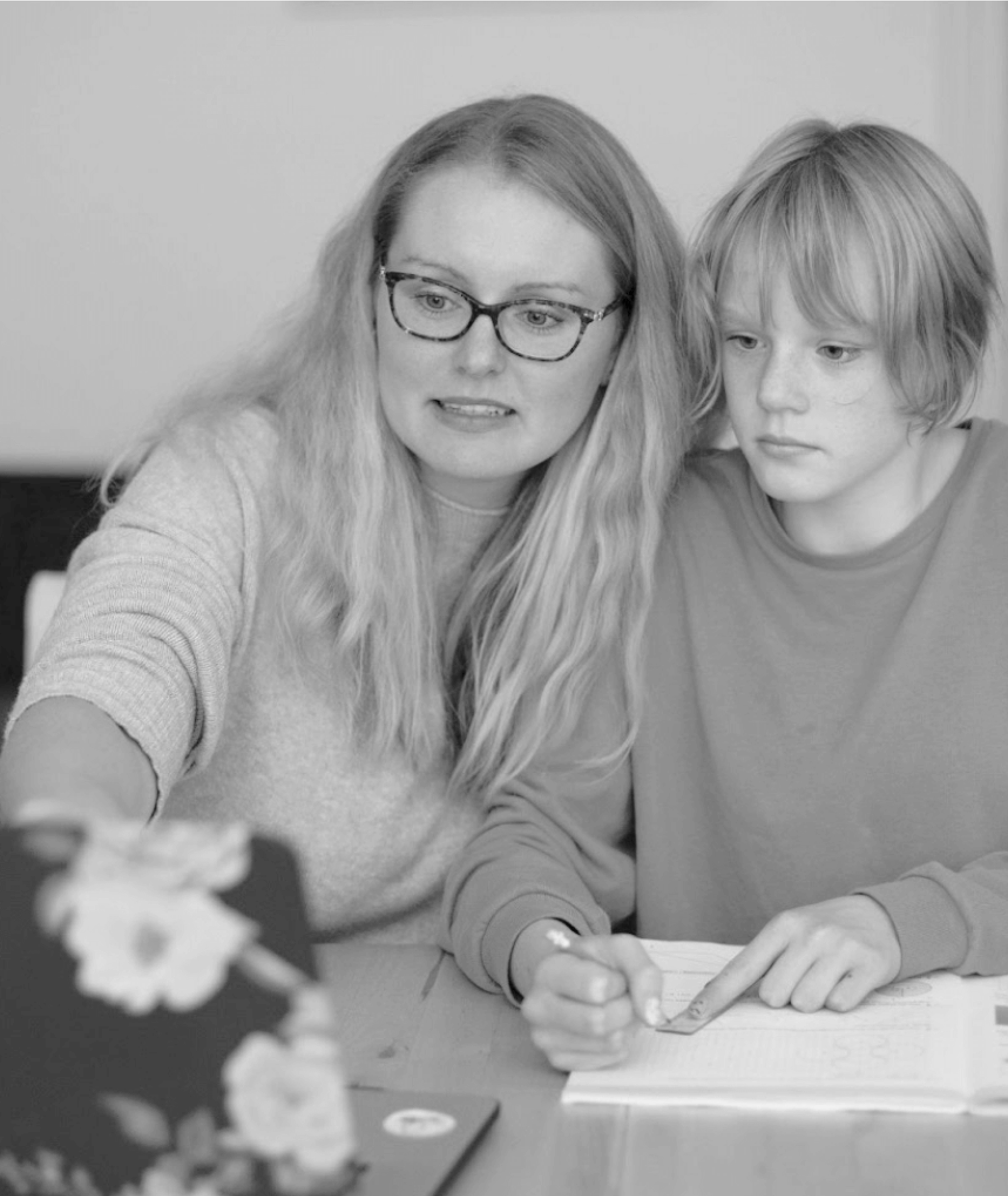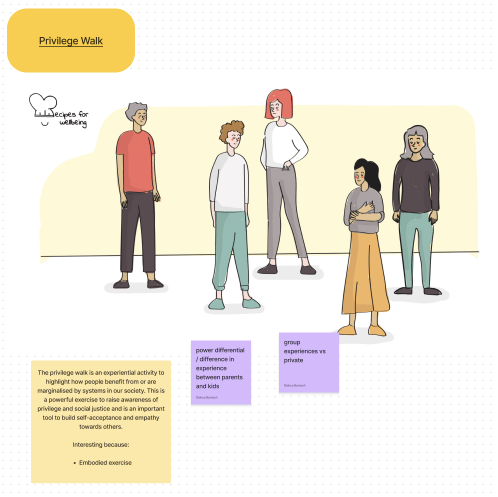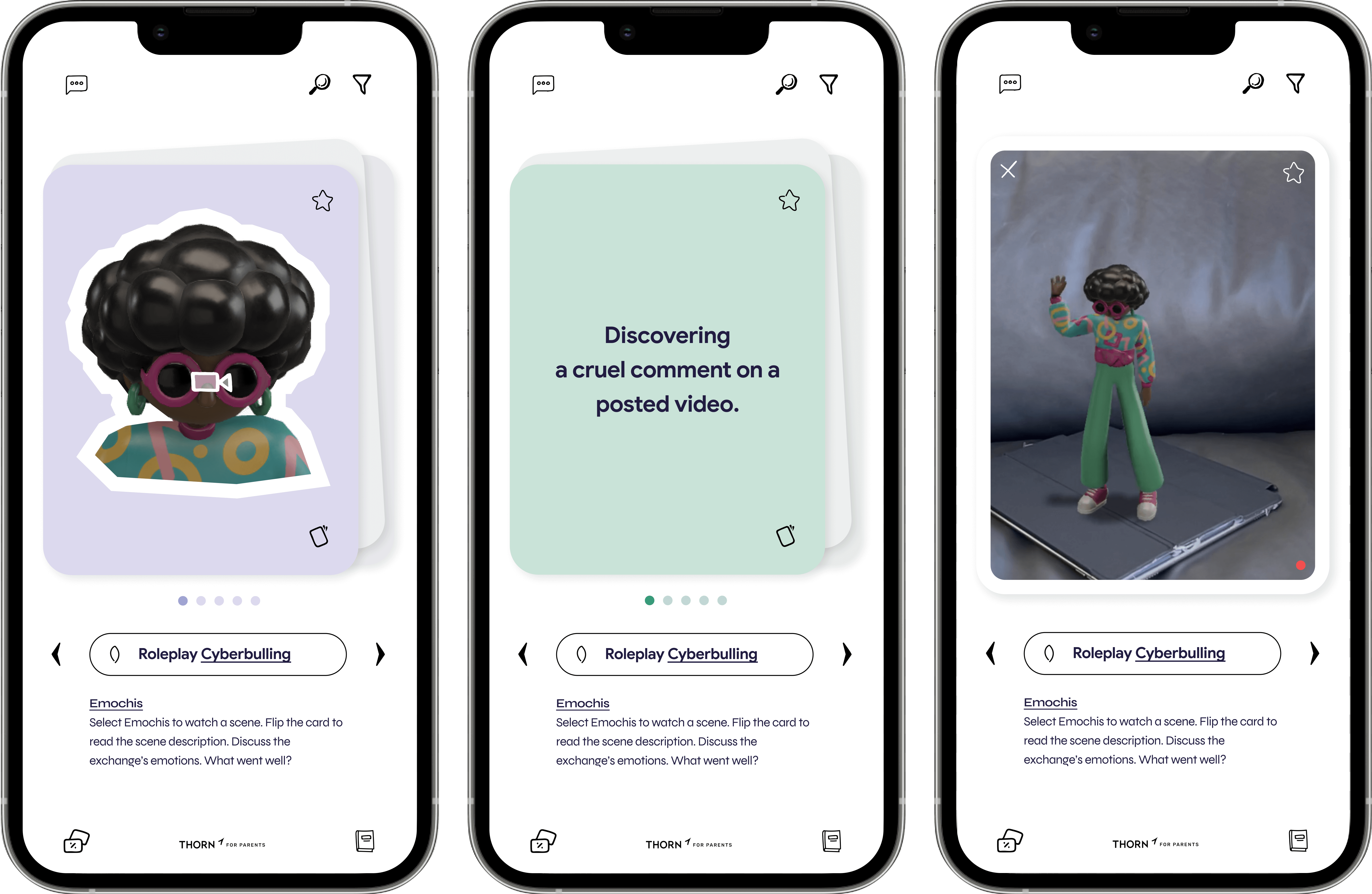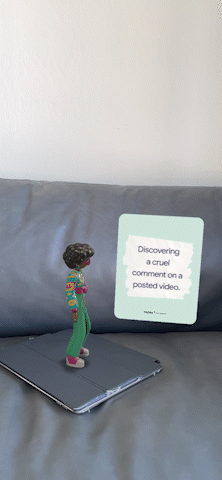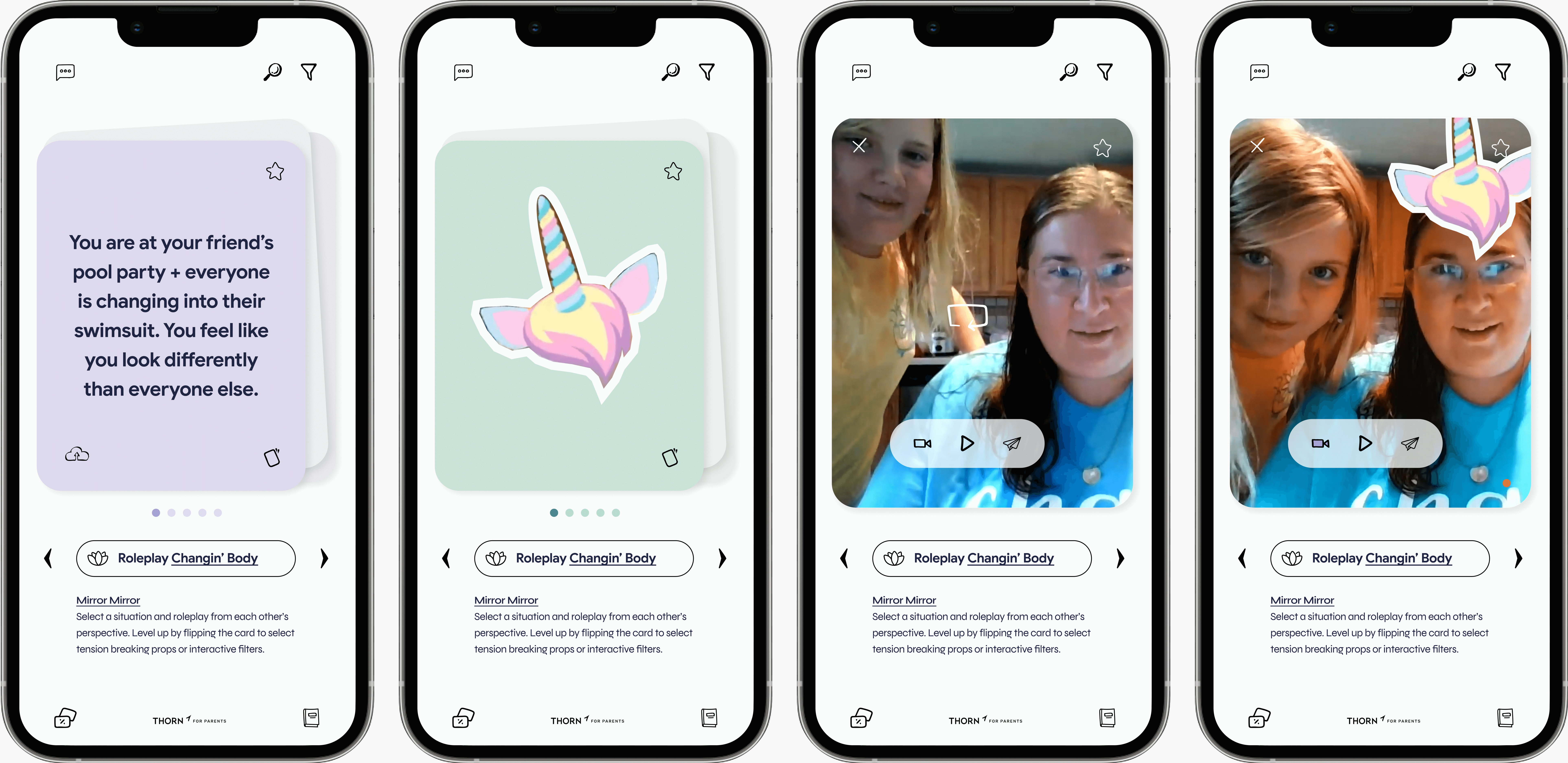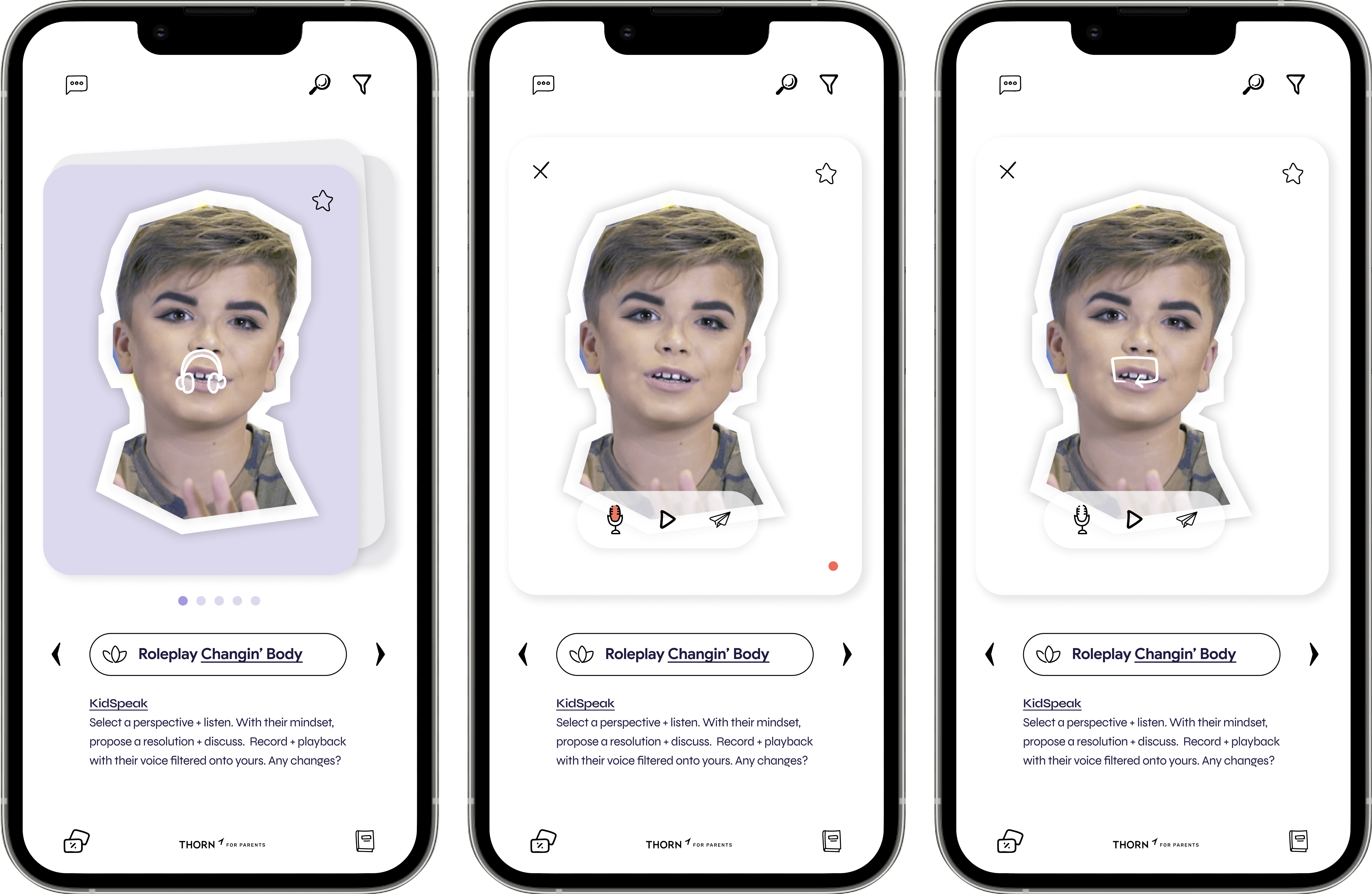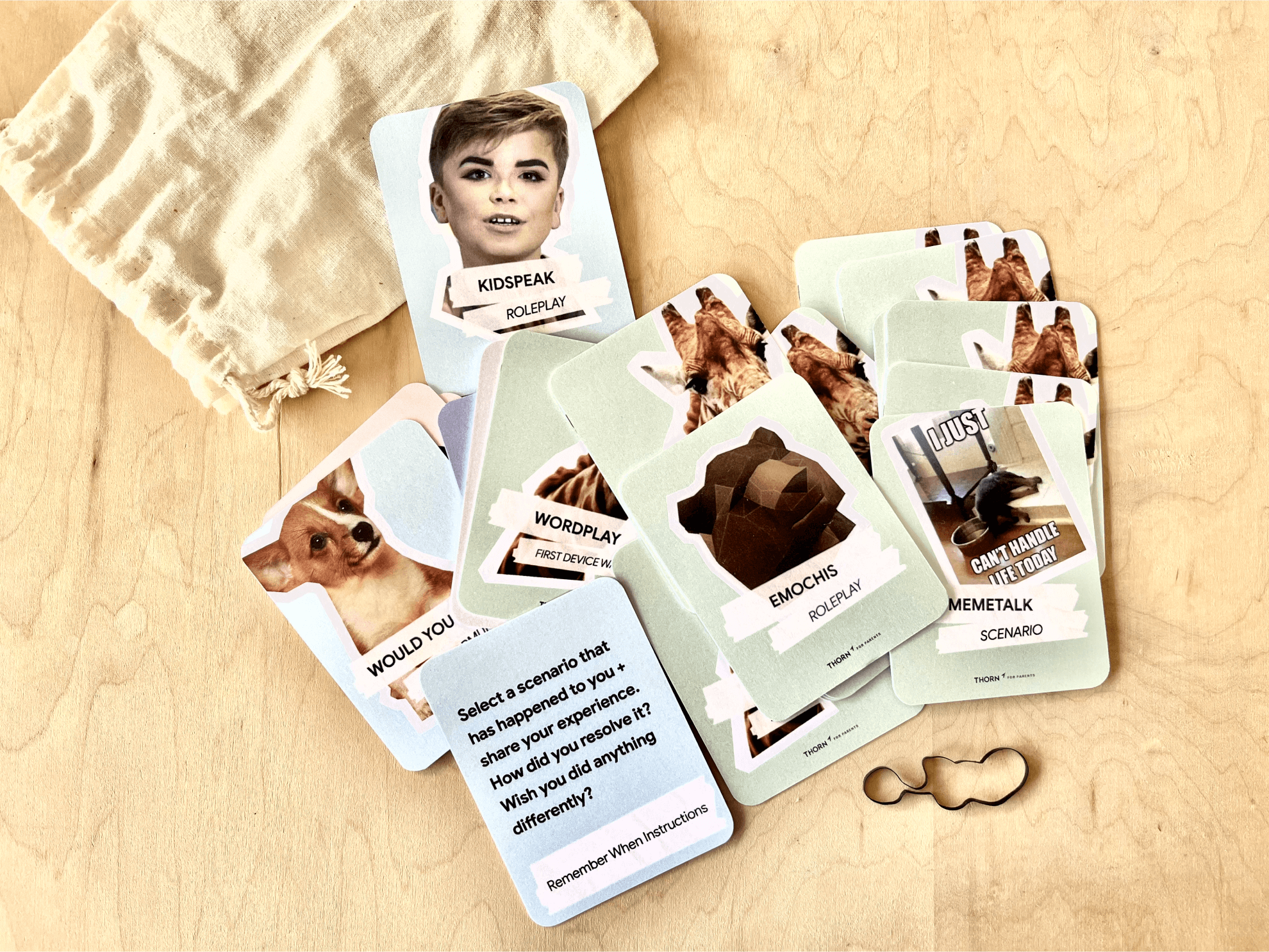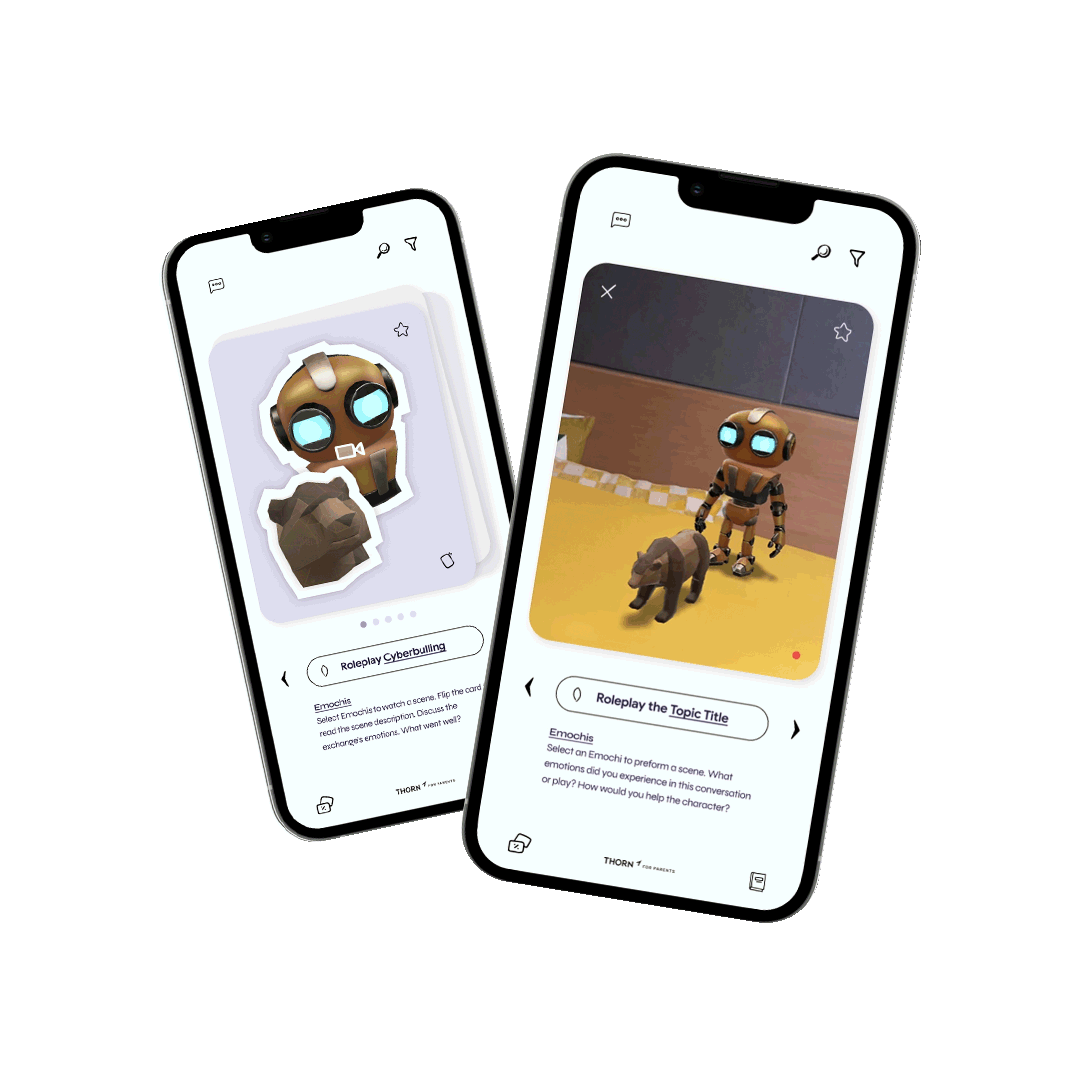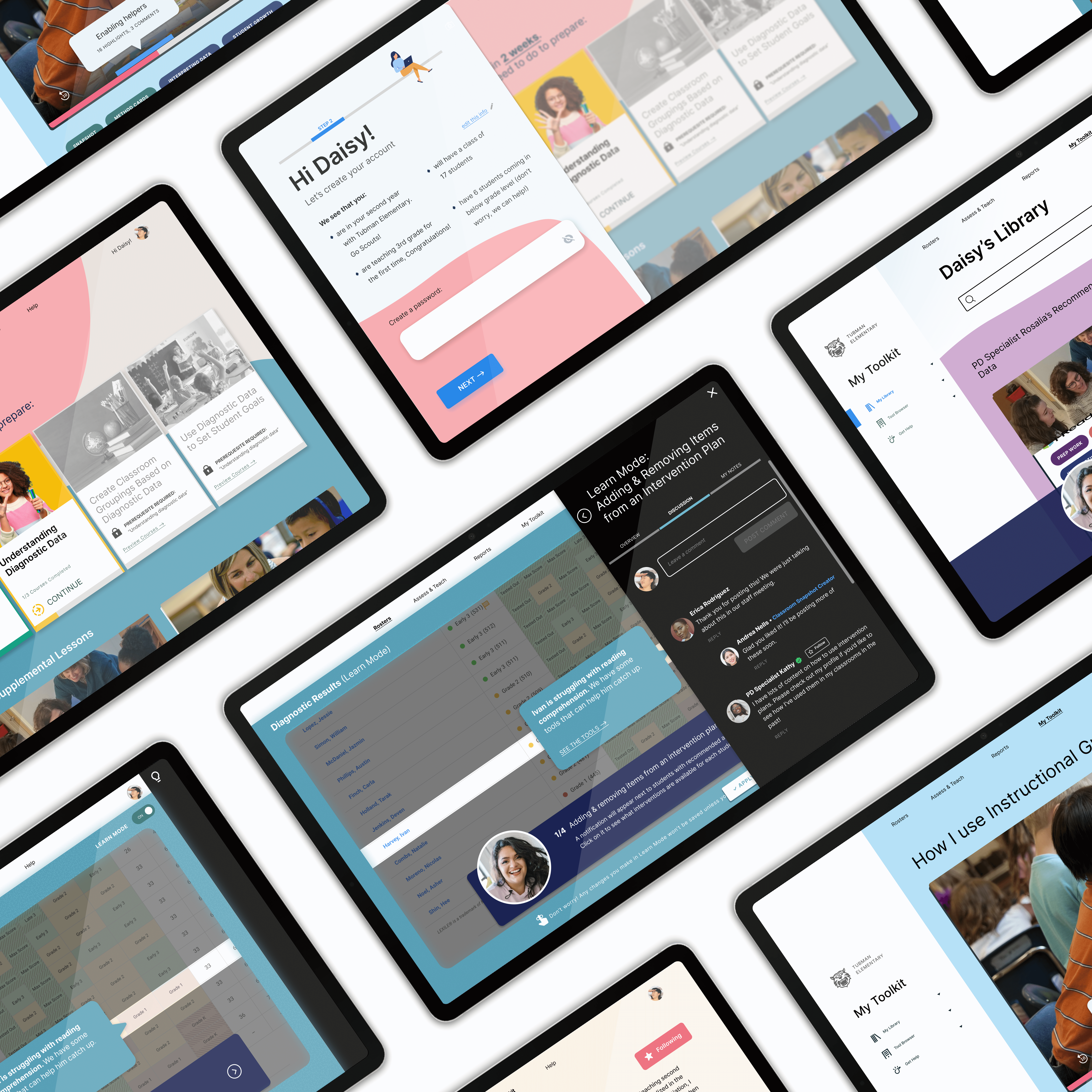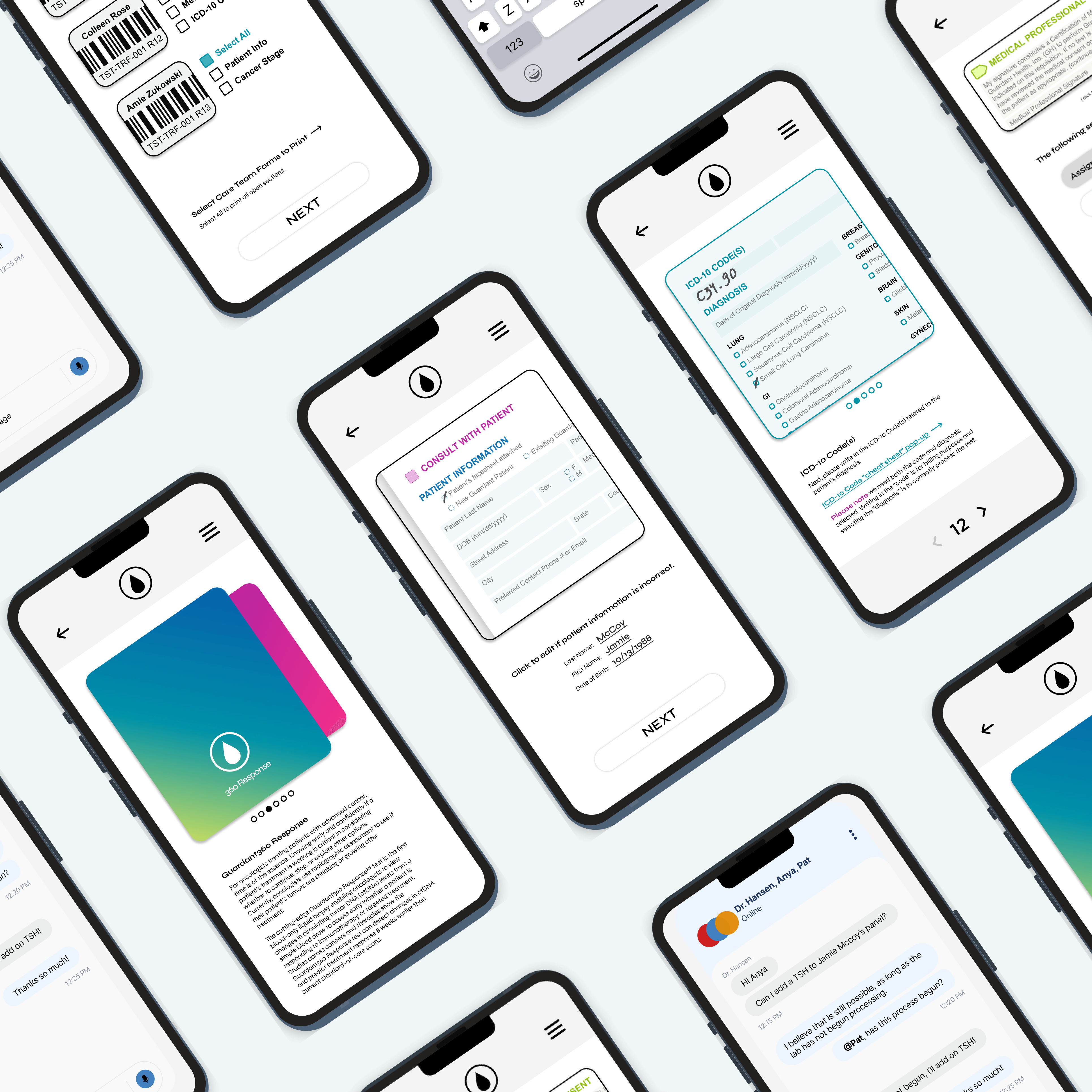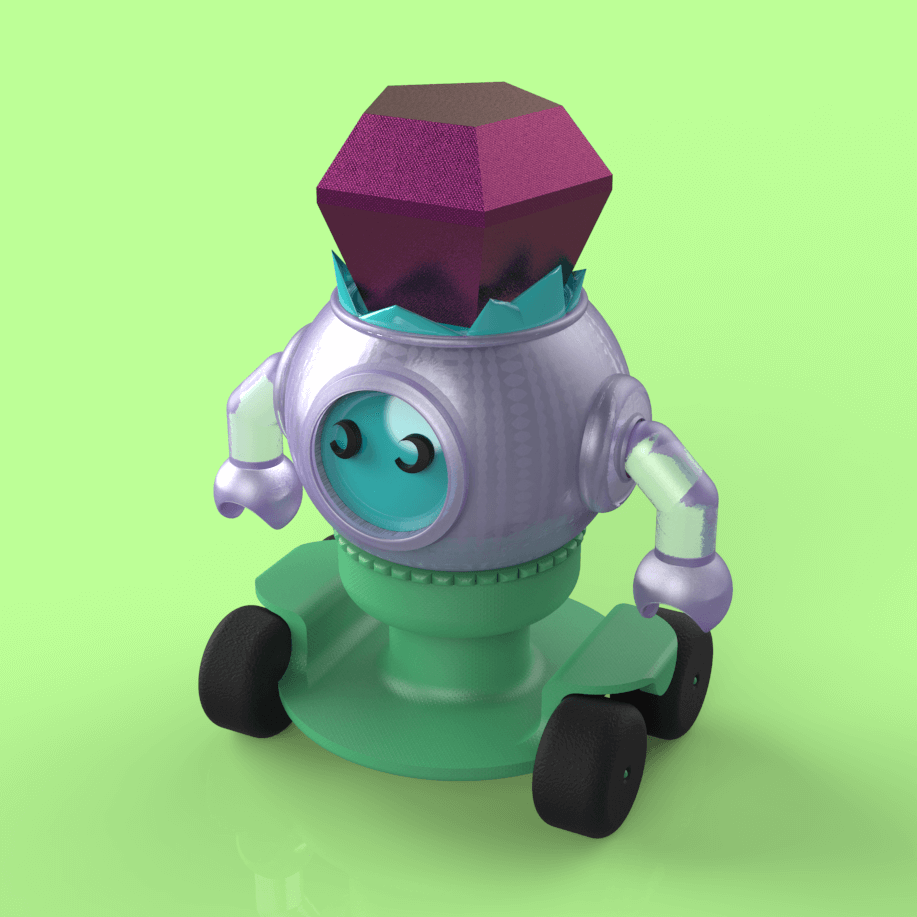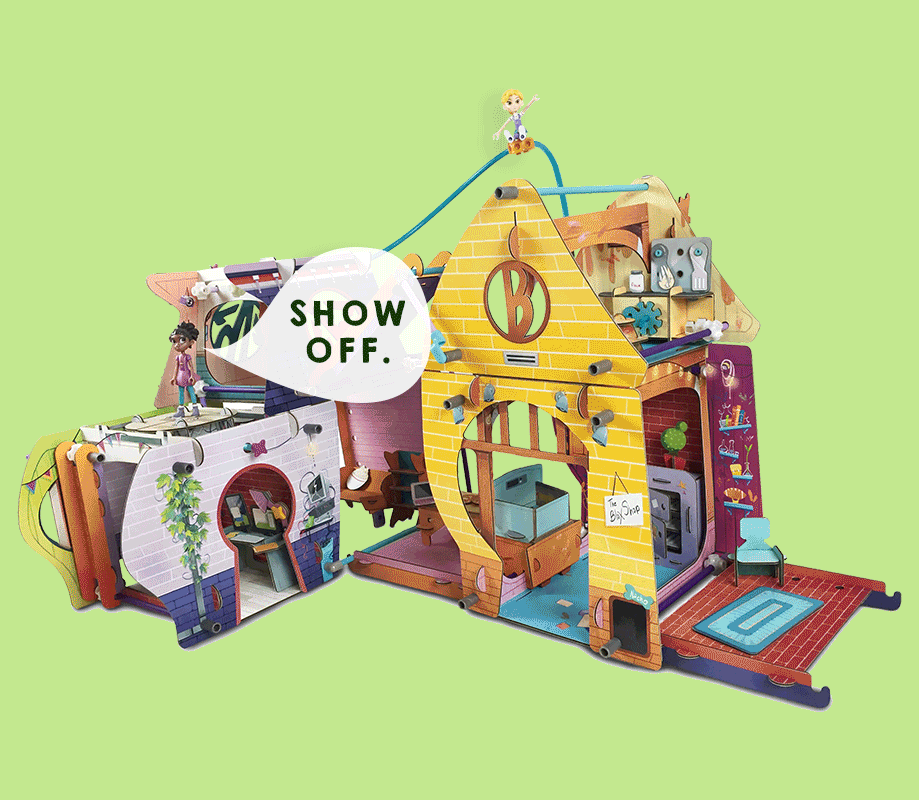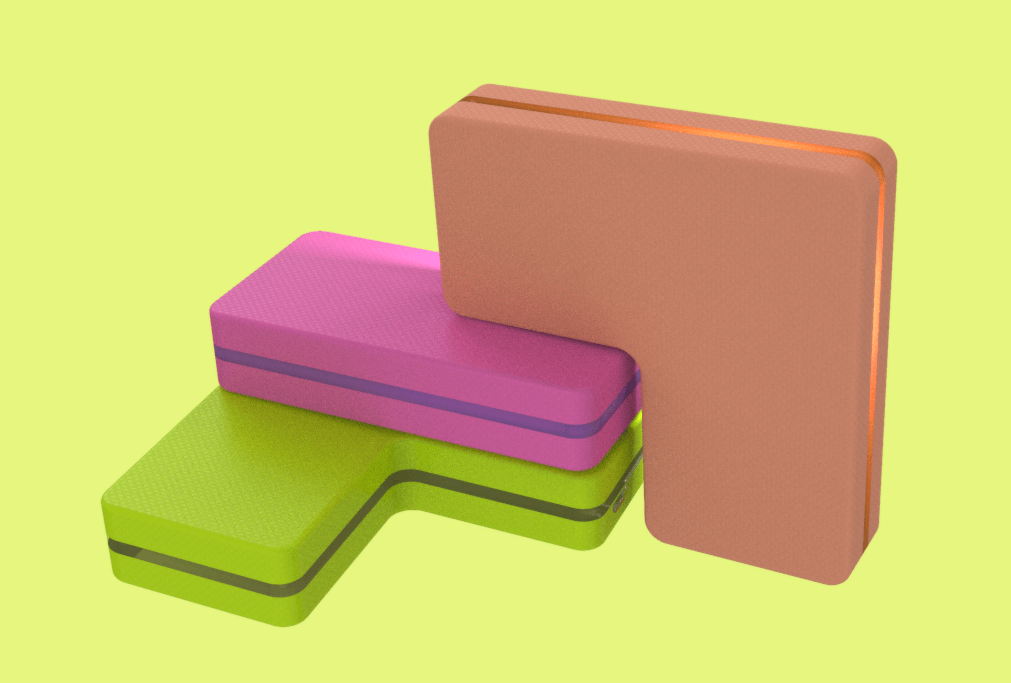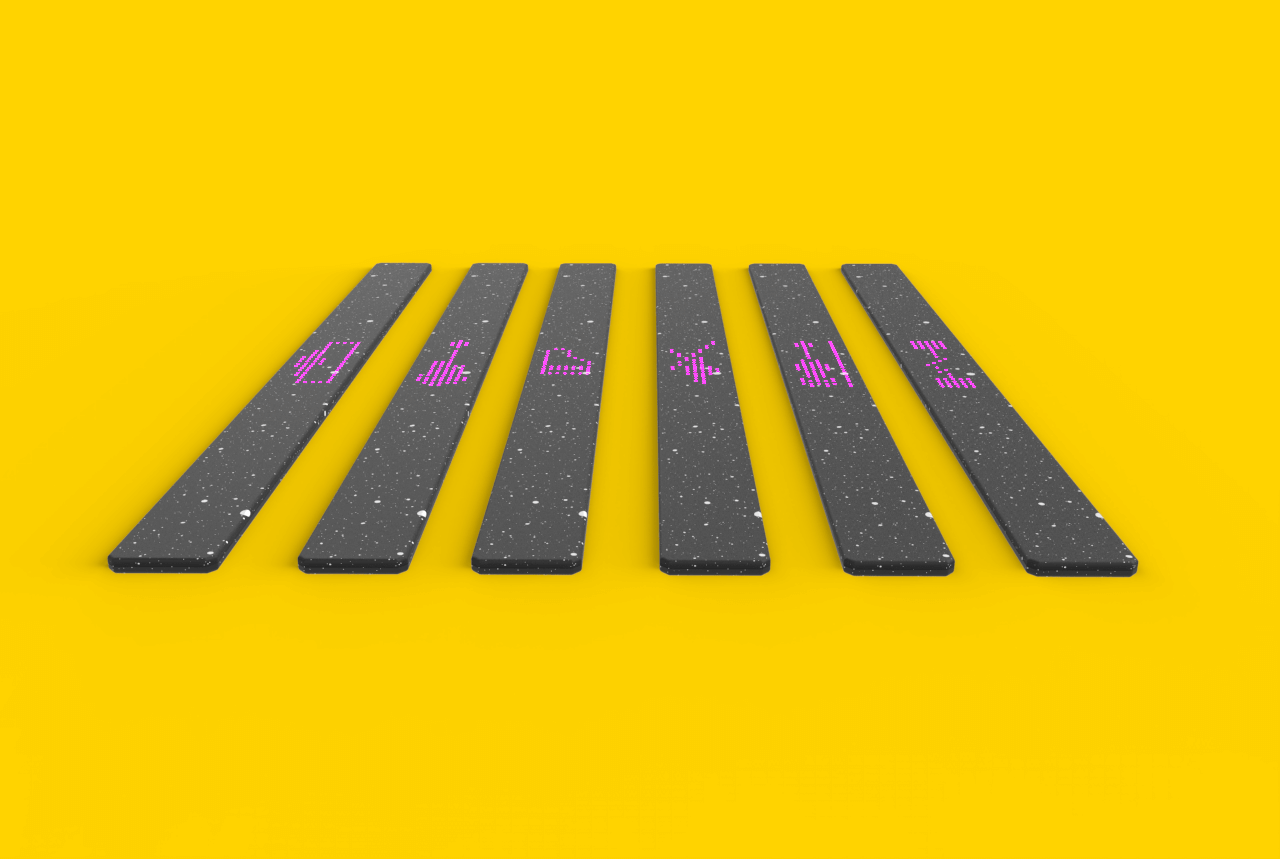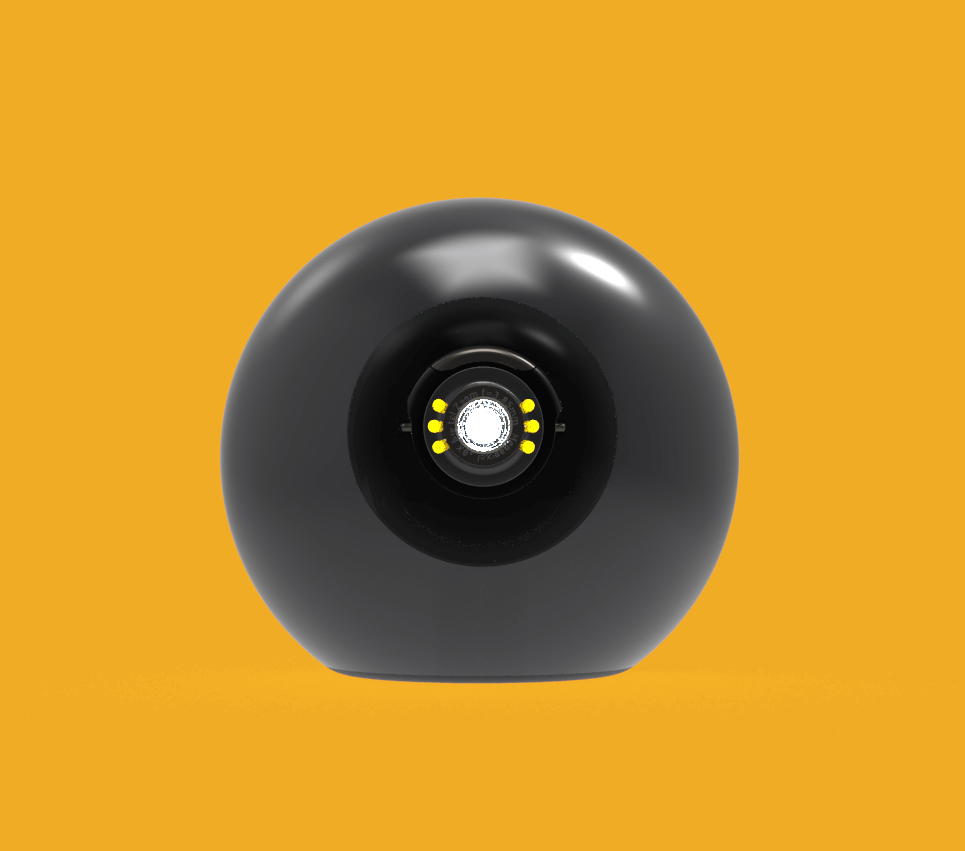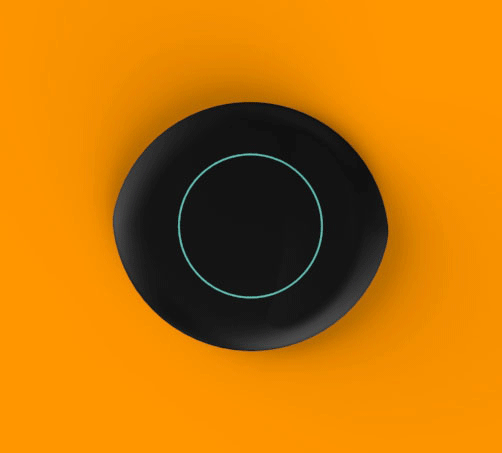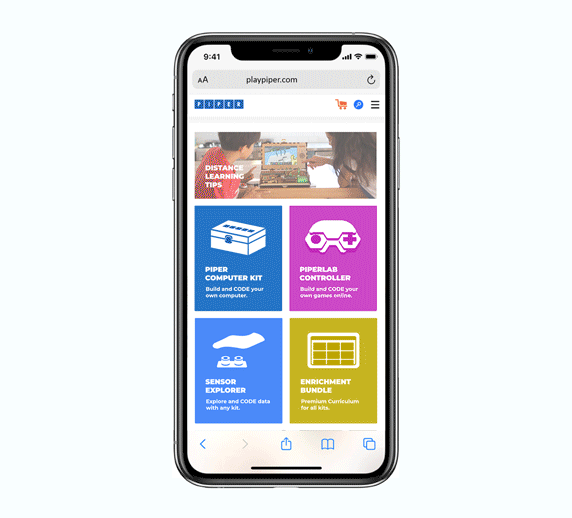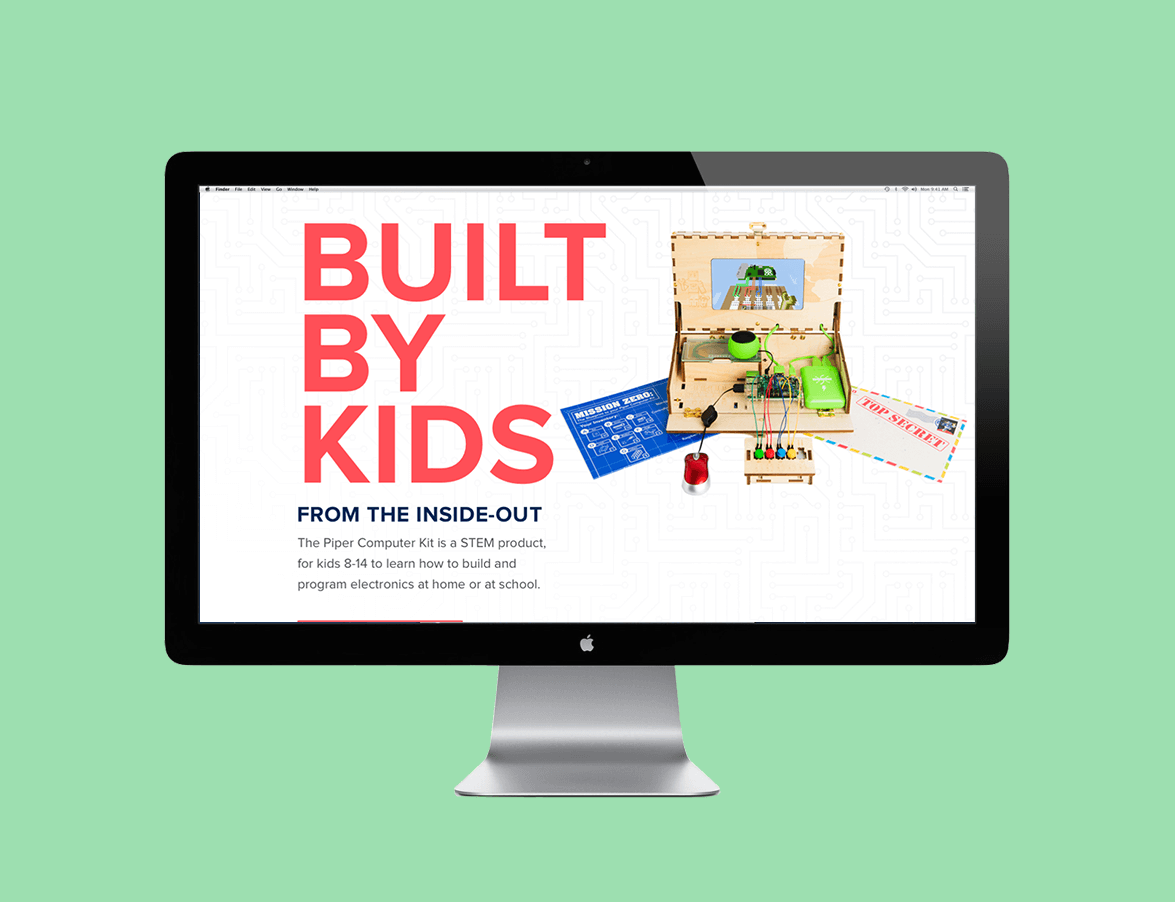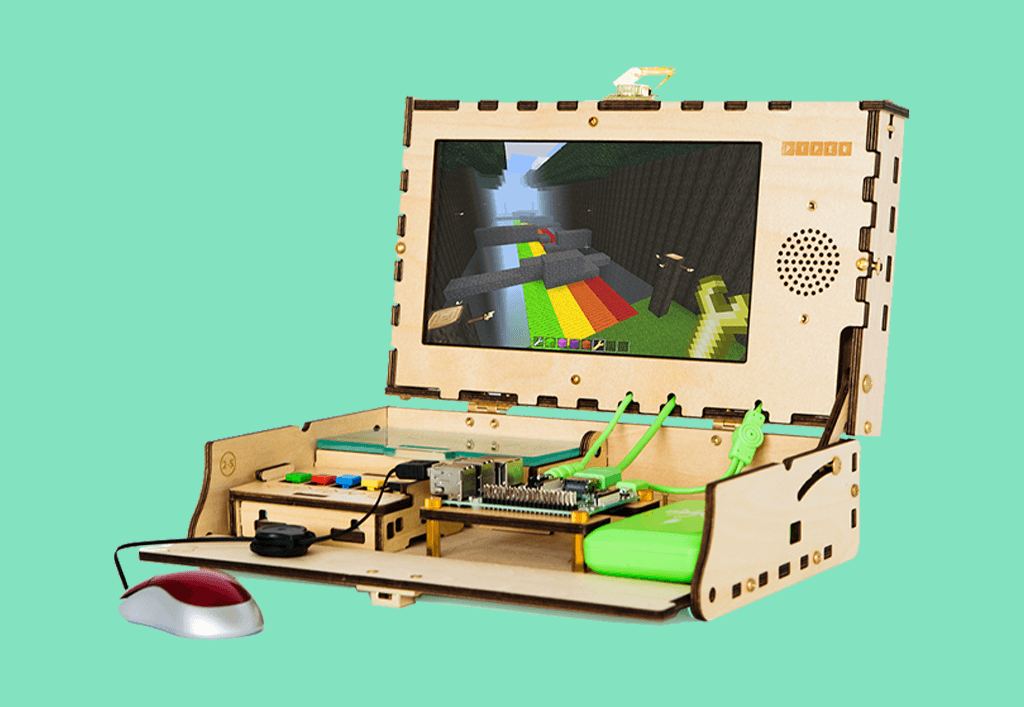CONVO STARTERS
Digital + physical conversation cards to prepare and upskill families about growing up in the digital era.
01 ► Refresh Your "Senses"
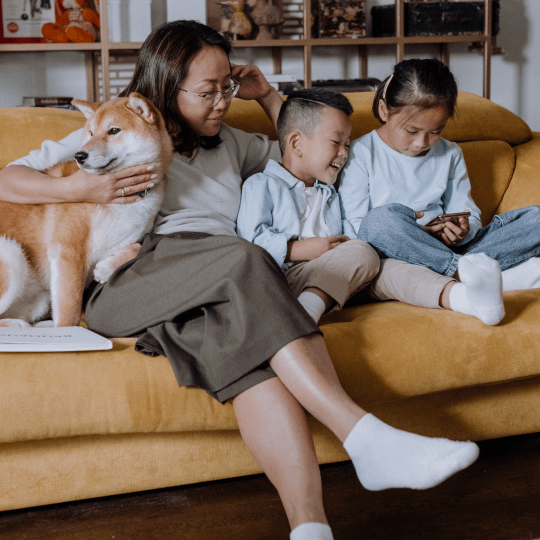



02 ▼ Opportunity
Most caregivers today grew up in the pre-digital era, often reacting to environmental cues to initiate conversations on safety and mental health in toxic online conditions — In the absence of those cues, conversations don’t happen.
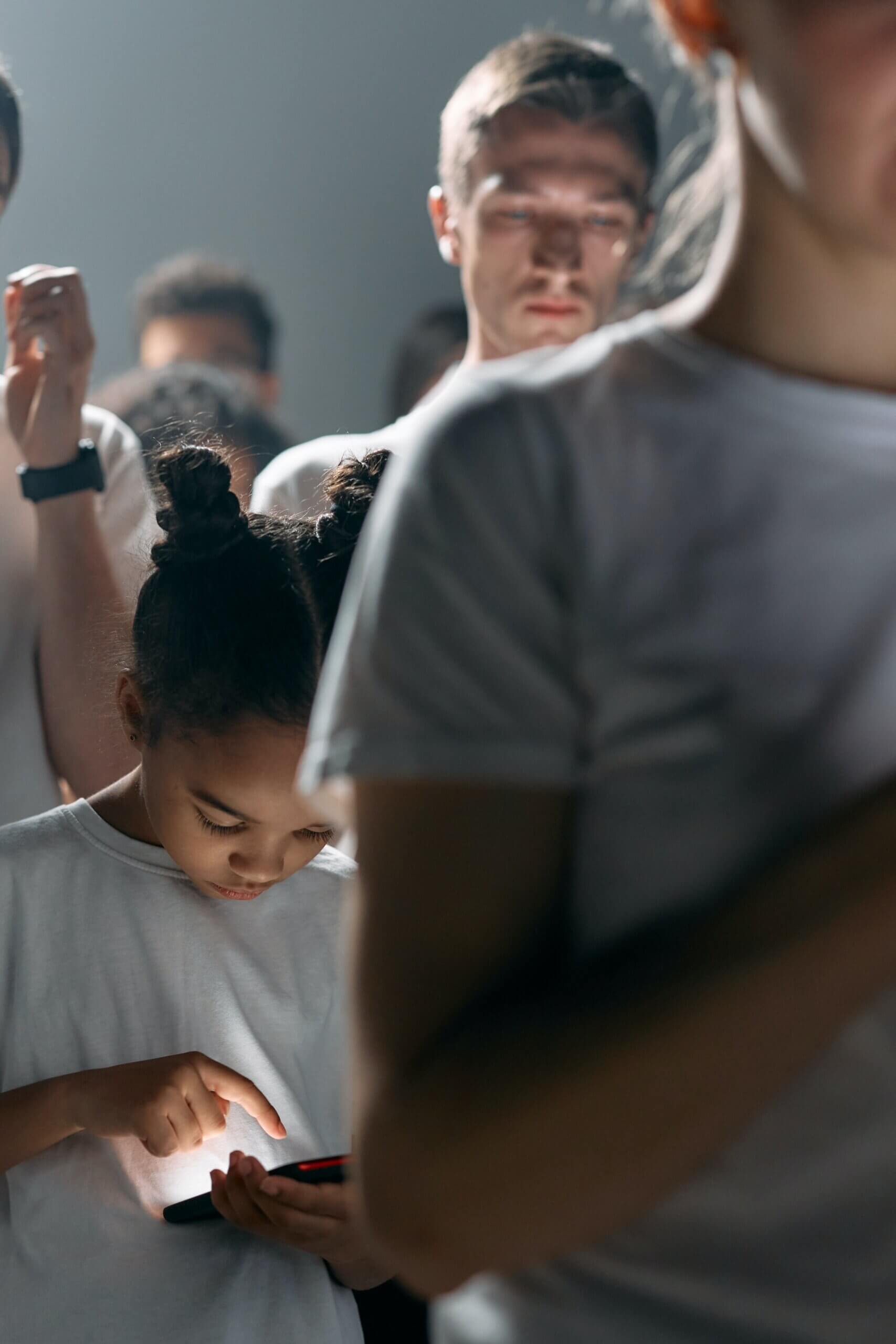
It's not just about incorporating the best digital and physical tools but designing guiding activities that provide a non-judgemental space for both parents and their children to openly and confidently converse.
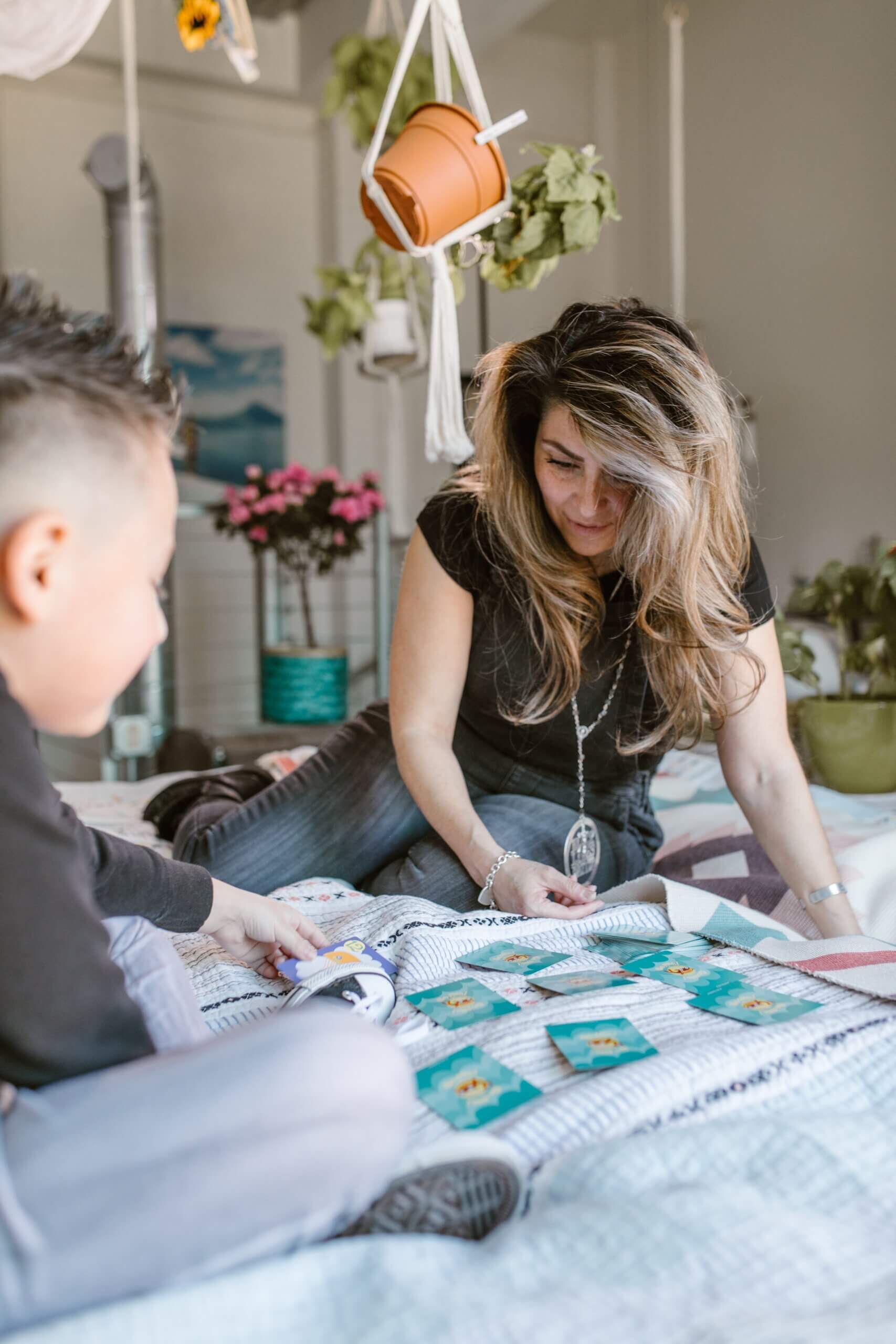
03 ► Features
Combining smartphones with the physicality of in-person card exercises provides easy access to up-skilling tools, easing in warm ups, and easy to use immersive tools that actually motivates families to start talking.

0A ● ONBOARDING
Parents want support without being told what to do — previews and curation “bloom” levels provide accessibility for diverse families at any development stage.
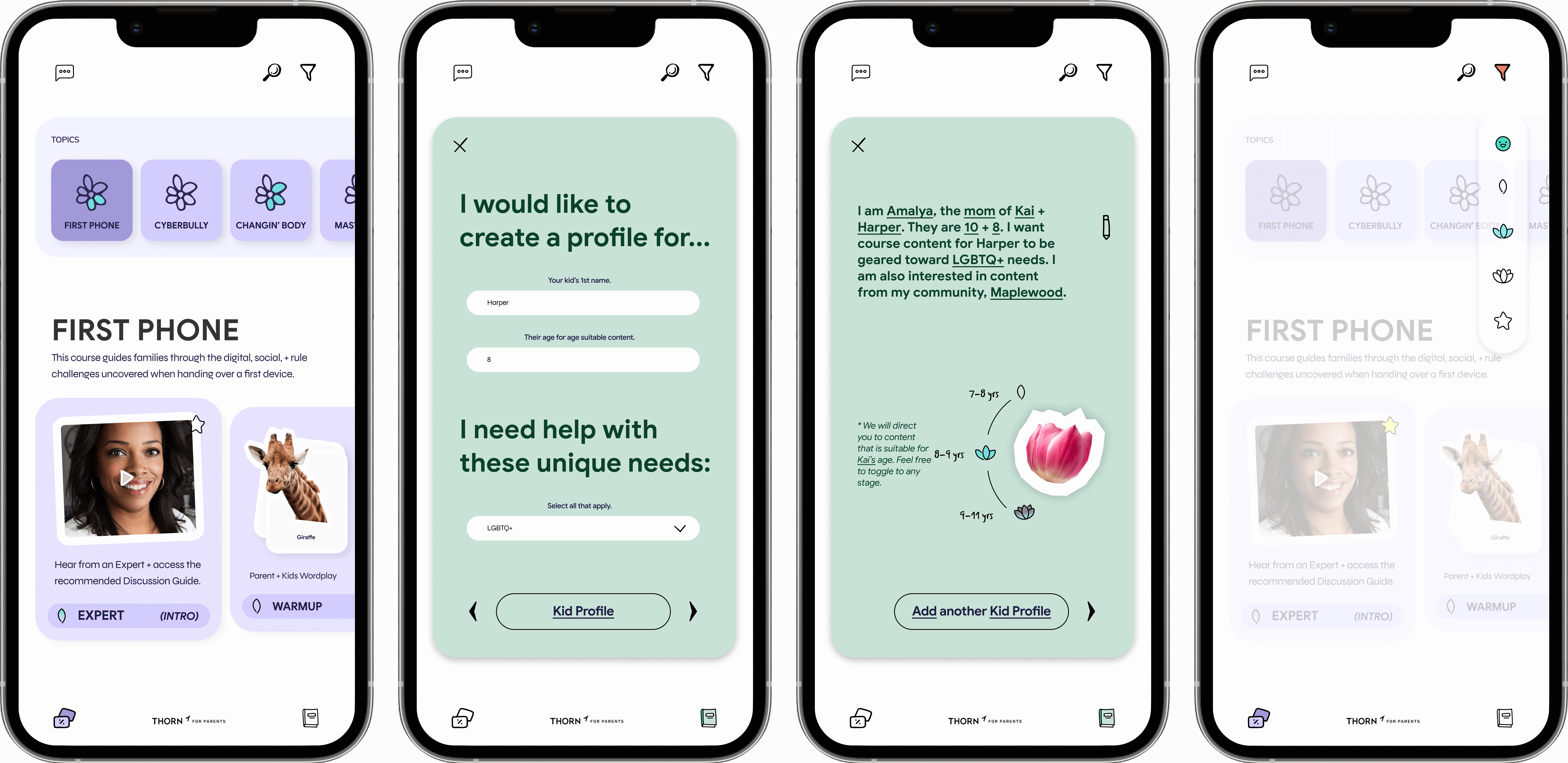
0B ● SMART AUTOMATIONS
Embedded smart searches and affirming reminders help take tasks off parents’ plates and reflect on their progress.
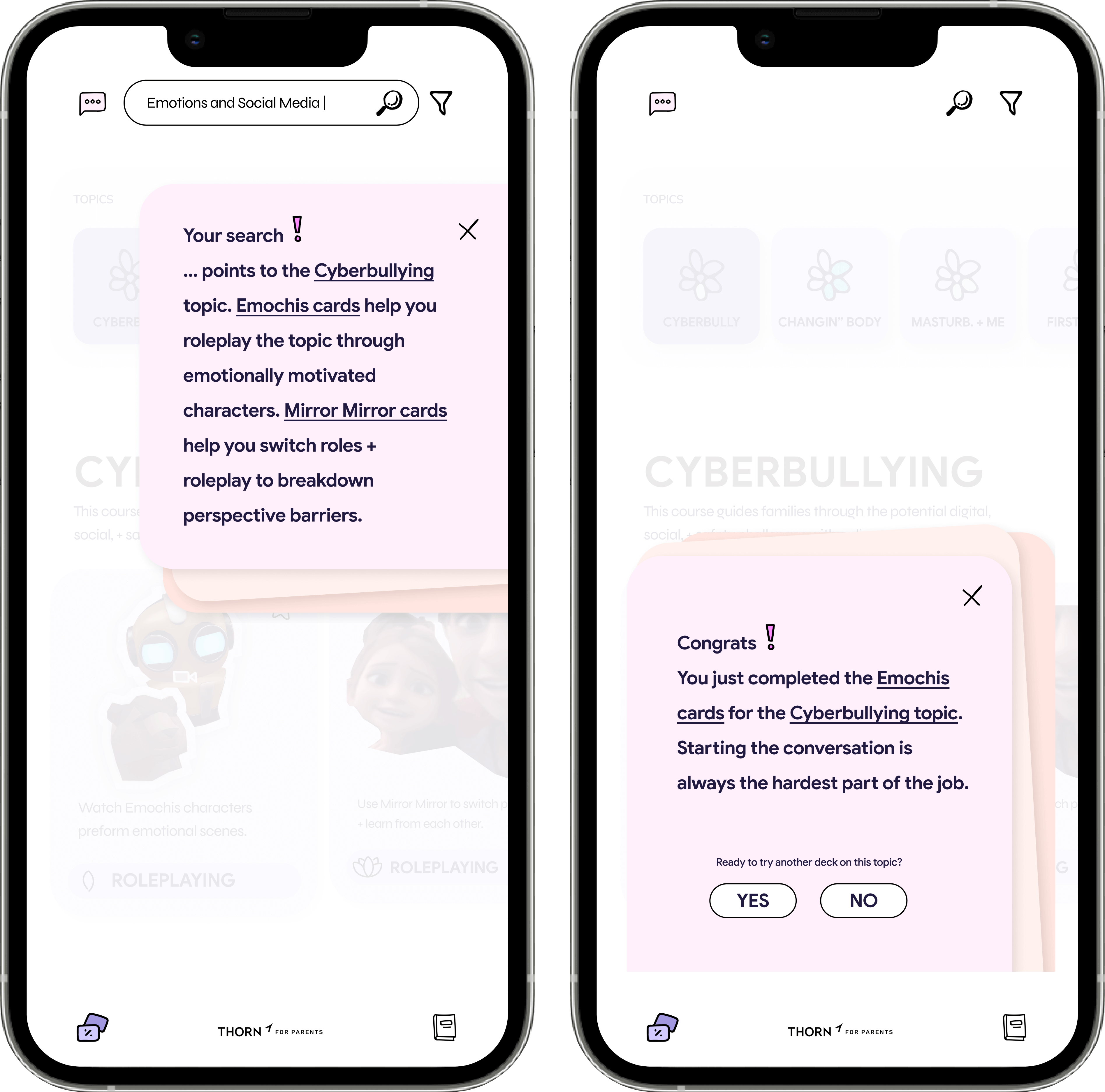
0C-1 ● ACTIVITY CARDS
Externalizing the source of questions and facts shifts the pressure off the family, leaving enjoyable moments for connection, cheat sheets for when things get awkward, and perspective inhabiting for building empathy.
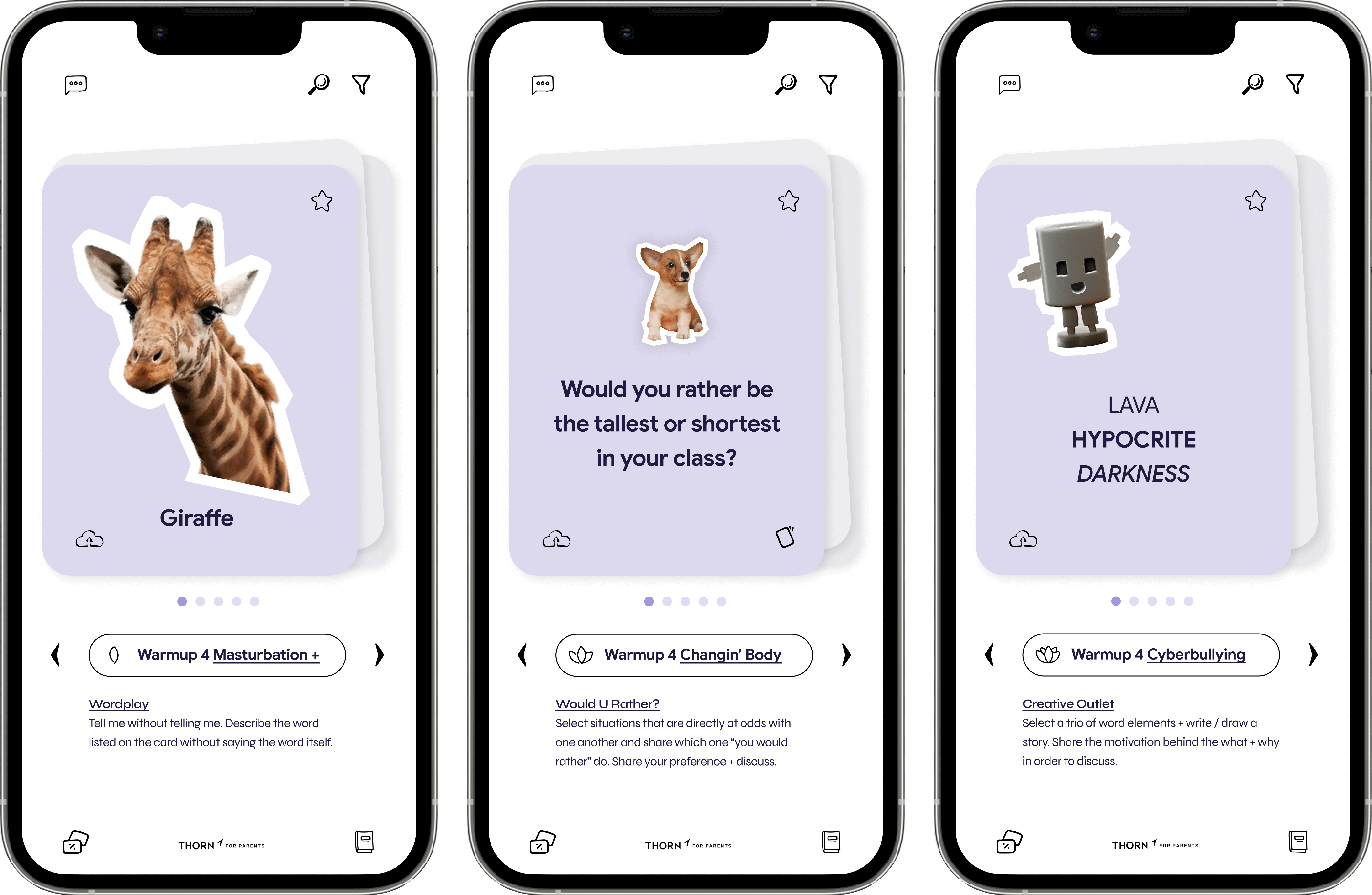
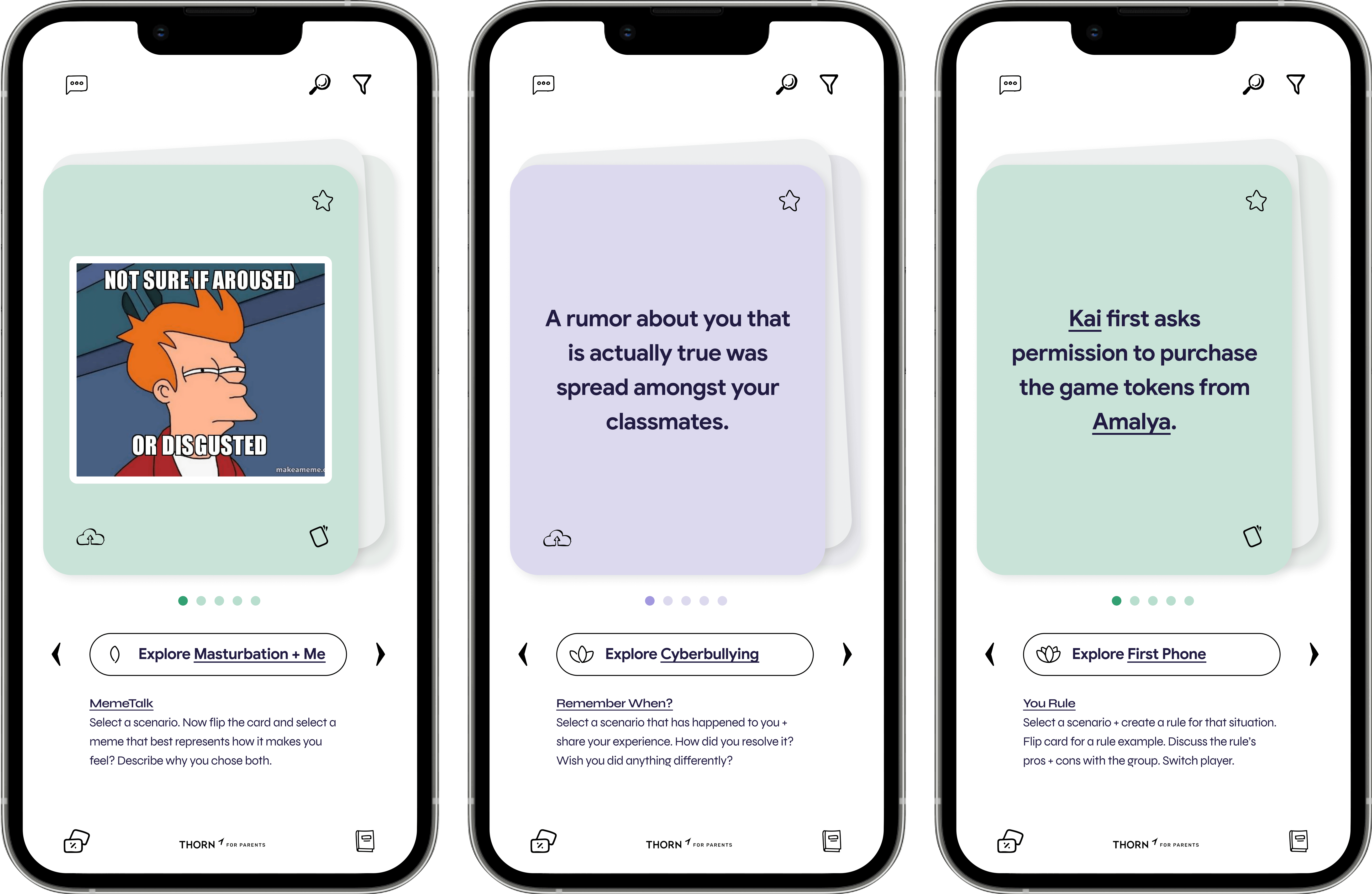
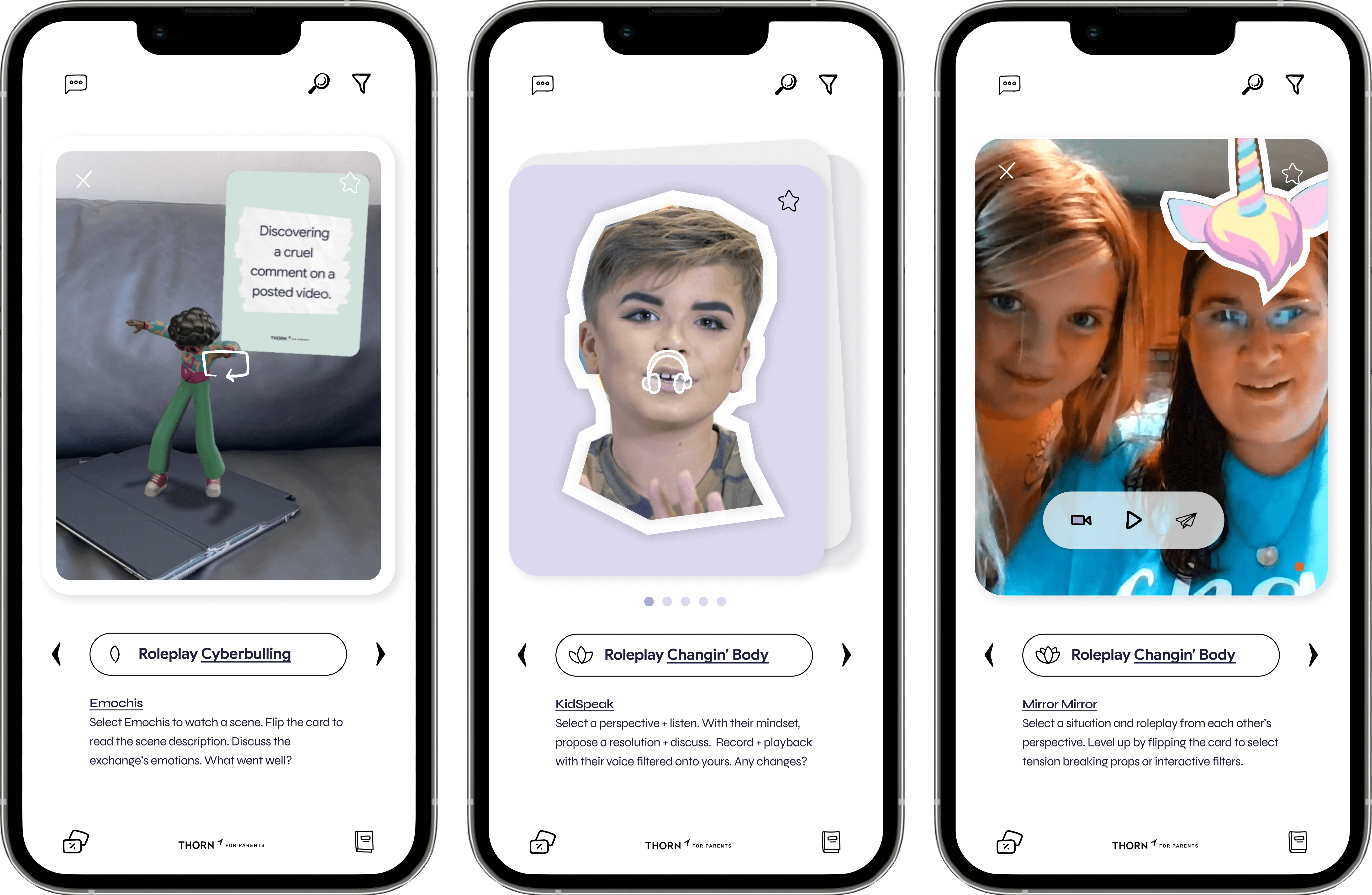
0C-2 ● PHYSICAL DECK
Swap out the app for the card deck when you need a little less screen time — with AR easter eggs to keep tech die-hards still engaged.
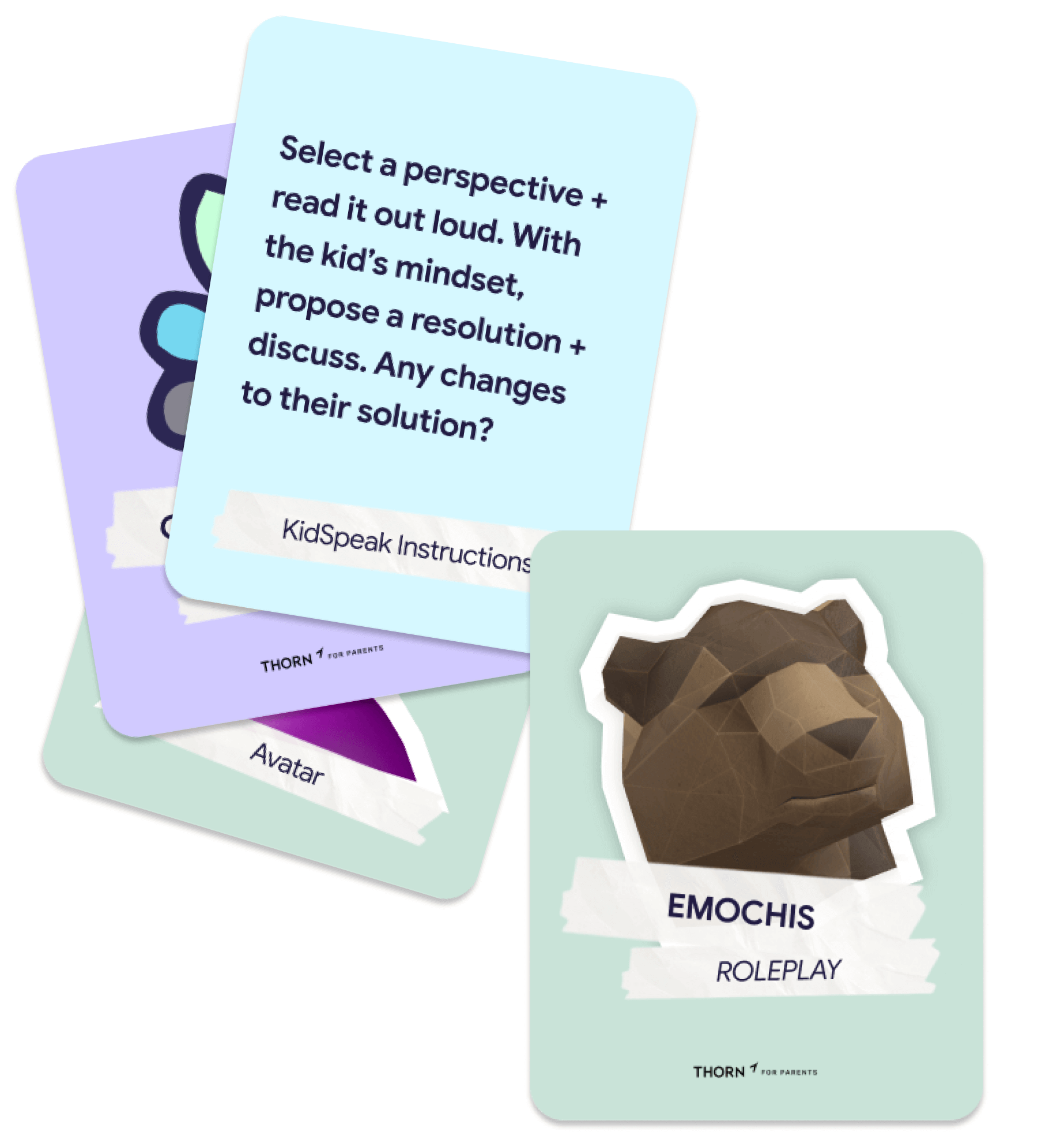
0D ● EXPERTS
Parents want to bite off what they can chew with vetted experts guiding their journey anywhere, anytime.

04 ▼ Research Phase
We spoke with experts – child and family psychologists, digital safety specialists, and doctors, parents and children to identify the roadblocks to productive family conversations.
Utilizing co-design sessions, focus groups, and daily life diaries to work directly with families and caregivers, we innovated on tools that would ease the discomfort of talking to children about difficult topics.
0A ● ITERATIVE WIREFRAMING
I led experience exploration by reinforcing the perspective stories with brainstorms like “Privilege Walking” to orient ourselves in the family mindset — in the face of blank stares, miscommunications, an endless list of decisions to make, craving positive reinforcement, hope of progress…
0B ● FILTER + PAPER TECH
I explored visual, augmented reality filters for stimulating cues during the tougher, emotional exchanges; proving it assists families with removing the need for a perfect conversation by making mistakes and tension playful.
I had this ah-ha moment when conducting a testing interview where the younger participants continually turned on and off filter plugins — they needed the awkwardness associated with role playing to completely disappear in order to better empathize with each other’s perspectives.
While experimenting with sound filters to protect test participants’ privacy during storytelling, I quickly realized sound distortion also builds dialogue trust and breaks down barriers to provide delight.
Most importantly, the act of asking participants to curate their filters provides them with the ability to learn by doing rather than being told what to do — empowering perspective sharing with non-holding but guiding hand is the fundamental goal of the activities.
Caregivers struggle with when and how to shelter their children and acknowledge their child’s independence because it demands that they relinquish some control.
Physical cards lower screen time but also provide an easy way to let kids autonomously curate the conversations perhaps while brushing teeth or driving to school — metaphorically putting kids in the driver seat.
0C ● LOGIC MAP
Keeping along the experience message that being prepared is not sheltering but rather acknowledging all likelihoods, I developed a client facing final offering map to handoff capabilities requirements and activity development timelines.
